Reflecting on backpacking Europe for 2 months
europe travel backpackingThis post is very long so I’ve tried to divide it into relevant/interesting/useful sections. Feel free to jump around, read it out of order, or go crazy with it. The sections I had the most fun writing were definitely the high level thoughts, the interesting things that happened to me and my biggest takeaways. So if you’re going to read anything in this post, I’d recommend reading those.
Table of contents
- high level thoughts
- (attempting to) film a documentary while traveling
- traveling solo vs with friends
- my Europe journey
- favorites
- travel experiences I did which I’d 100% recommend
- some general concrete advice for traveling
- some interesting things that happened to me
- my biggest takeaways from my trip
high level thoughts
I graduated college in August of last year, instead of jumping straight into full-time work or more school like many of my friends, I decided to take a sabbatical and travel for a couple of months. Initially, I was a little apprehensive about doing this because I didn’t want to “waste” several months, but I’m very glad I did it. If you’re in a position where you’re able or fortunate enough to be able to do this (and it’s cheaper than you think it is, more on this below!), I would highly recommend it! Personally, I have no dependents, had made a bit of money throughout college from work, and knew that a large gap of uninterrupted time when you start working is rare, so I thought why not.
I think I grew a lot from this trip, in more ways than I can imagine. I learned a lot while traveling, about myself, the history and culture of the places I visited, and the interesting stories of all the awesome people I met along the way. But the most valuable thing I will take and cherish from the trip is all of the memories and stories I made.
Jesse Itzler has a great clip where he talks about the importance of building your “life resume” (which are the experiences that you have) in tandem with your “career resume”. One of my biggest takeaways from this trip has been showing me the importance of chasing experiences that really force you to grow and be uncomfortable. Going out and actually doing the things you get excited by, making them a reality that graduate your journals and group chats.
I went into this trip with the intention of having experiences that would make good stories (my friends all collectively refered to this trip as the FAFO - fuck around and find out - chronicle) and honestly, I was shocked with the results. I feel like I accumulated a decade’s worth of stories and experiences in only two months. Most importantly, I was shocked with just how much having this mentality really forced me to come out of my shell and chase the experiences I often heard about and admired from other people.
This coming year and moving forward, I am trying to really embrace this mentality of “do it for the plot” in all aspects of my life. I think 2023 as a whole year showed me how much fuller life can be with this mentality and my experiences from this trip only validated that life is too short, if you’re not having fun, growing, and chasing experiences that would make good stories, what are you doing.
(attempting to) film a documentary while traveling
When I first decided to go on this trip, I really wanted to produce some artifact that could tell some part of my experience traveling. I decided that the coolest thing to do would be to try to film some kind of documentary. After a bunch of brainstorming, I thought that the best thing to do was a sort of “Humans of New York” style interviews with locals around Europe that I met. The idea being to surface and reveal what their lives are like, and show the more human aspect of people who live in different places all over the world. Concretely, what this would look like was getting 5-10 minute interviews asking ~ 7 questions to each person. The questions I ended up choosing were
Name
Where are you from? Where were u born?
What do you do for a living and what does a typical day in your life look like?
What gives you a sense of purpose in life?
What advice would you give to your younger 18 year old self?
What’s your happiest memory?
What’s the kindest thing someone’s done for you?
If your life so far was a movie, describe your story in 1 minute?
I think this was a good idea in theory, and I did end up doing a couple of interviews, however for a number of reasons below, I did not continue filming after the first couple of weeks.
1. I encountered a lot of resistance asking for interviews
- I was a little surprised by how resistant and uncomfortable people were to be filmed, especially older people. The funny thing was that you could be having close to the exact same conversation off-camera, but as soon as you asked to film them, people would clam up like you put a gun to their head.
- My takeaways were that a) people have become very afraid and b) you have to build relationships with people and help them trust you before they’re comfortable being filmed (this is what I did with the interviews I did manage to secure)
2. Asking these direct questions turned out to be a poor way of surfacing the interesting stories people had
- I think some of the questions were just too direct. Often times what I would learn off-camera about the interesting stories people had did not translate to a good interview on-camera.
- I realized that it would take a lot of work and time learning and talking to a person in order to bring out these stories about their life. Doing a short 10 minute interview was not going to unearth these interesting stories, and would not immediately bring out the insights they could have to offer
3. It’s hard to connect with locals from all backgrounds when you don’t speak the local language
- I talk about this a little more in the takeaways section, but part of the reason I think I encountered resistance asking for interviews is the lack of trust that accompanied not speaking the local language.
- It also meant that this self-selected for a younger crowd who were more receptive to being interviewed, when my intentions were to try to interview people from all backgrounds and ages, especially the older generations because I thought they would have the most to share. So if I were to do this again, I would definitely either learn the local language or travel with someone who speaks the local language.
4. Traveling and experiencing everything new while trying to do the documentary at the same was exhausting
- I did not realize how tiring traveling would be and the added work of going out to interview people was a lot. In the end, I had to choose between being present with all of the traveling or doing the documentary and I decided to choose being present
- I figured I can just write about all of the stories and people I met, which is why I journaled when I was in Europe (even though I don’t regularly journal).
So in the end I, sadly, did not end up finishing the documentary but it’s still a goal of mine to film something like this, so I will use these lessons to properly plan and hopefully make it a reality at some point in the future.
traveling solo vs with friends
About half of my trip I did solo and the other half I with with a good friend from college. I would recommend trying both and I liked each one for different reasons, I’d roughly summarize the pros and cons of traveling solo as:
pro of traveling solo
- you have complete control over your own schedule. You can do whatever you feel like doing, whenever you want, with whomever you want
- convenience + flexibility i.e. if you want to change your trip last-minute for whatever reason
- forces you to go out there and meet new people. And the dopamine rush you get when you really connect with someone is crazy - i.e. in Barcelona, I really clicked with a Dutch guy, we went out and hung out together a couple of times, and he ended up traveling to see me later in Lisbon where we got to bond and hang out more!
- can enjoy your own company (if you travel with the same person or group of people for a very long time, you can start to get sick of each other if you’re literally doing everything together)
cons of traveling solo
- burden of doing all the planning and tracking is on you
- can occasionally get lonely if you don’t find people you really connect with
- if and when you hang out or do stuff with people, many times you’re starting new relationships completely from scratch, which can get exhausting after a while instead of sharing memories with someone you know and love
I think my take on choosing between the two now is that, given the option, I would opt to travel with (a group of) good friends over going solo, but I would not let the fact that no one can come with me (be it for timing or whatever reason) stop me from going somewhere I wanted to go to. In general, when you travel in this way where you’re usually staying at hostels or other forms of shared living (like with host families, couchsurinf etc.), it’s much less lonely than I thought it was going to be. And certainly, much less lonely than just staying at a hotel or AirBnB on your own where it would be much harder to meet people.
One other tip I took away from this is that not all of your friends will be good traveling buddies. I think how close you are is actually not the main factor in determining whether you’ll be good travel buddies, as much as
- how good y’all are at communicating with each other
- how lenient/accommodating you both are (traveling with someone who’s super selfish and only wants to have their way will be a very difficult experience)
- how comfortable you guys are with not doing everything together. For example, if you really wanted to see A and they really want to see B, that it’s ok to occasionally split up and link up later
I was super fortunate that my friend and I were both very close and ended up being good travel buddies, but I can imagine how doing this with other friends might have been more tricky.
my europe journey
I traveled from October 16 - December 17. My trip breakdown was roughly
- October 16 - 23 Dolomites, Italy
- October 23 - October 26 Interlaken, Switzerland
- October 26 - 29 Bern, Switzerland
- October 29 - 31 Munich, Germany (day trip to Fussen, Neuschwanstein Castle, October 31 and Salzburg, Austria October 30)
- October 31 - November 4 Prague
- November 4 - 7 Vienna, Austria
- November 7 - 12 Budapest, Hungary
- November 12 - 14 Lake Bled, Slovenia
- November 14 - 16 Ljubliana, Slovenia
- November 16 - 19 Split, Croatia
- November 19 - 23 Dubrovnik, Croatia (day trip to Mostar in Bosnia November 20)
- November 23 - 28 Athens, Greece
- November 28 - December 4 Barcelona, Spain
- December 4 - 6 Granada, Spain
- December 6 - 10 Seville, Spain
- December 10 - 13 Porto, Portugal
- December 13 - 17 Lisbon, Portugal
Total # of countries: 12
Total # of cities: 25
favorites
best nature spots
- Dolomites (in terms of mountains, hikes, and views)
- Interlaken + surrounding areas Lauterburnnen, Grindelwald etc. (in terms of mountains, hikes, and views)
- Split and Dubrovnik (Croatia) in terms of islands and beaches
- Lake Bled, Slovenia
best night life
- Budapest
- Barcelona
- Lisbon
coolest culture
- Mostar (Bosnia and Herzegovina)
- I did not end up going to Sarajevo even though I really wanted to, but I’m sure this would have cracked the list if I had
- Salzburg
- Vienna
- Granada
- Athens
coolest architecture
- Seville
- Salzburg
- Vienna
- Budapest
best food
- Mostar (Bosnia and Herzegovina0
- Athens
- Croatia
most expensive
- Switzerland (and it’s not even close)
cheapest
- Eastern Europe broadly
travel experiences I did which I’d 100% recommend
This is very incomplete and just the highlights of the different countries, if you’re going to a specific place, reach out to me and I can give more specific and complete recs!
- Attend the opera in Vienna. Tickets are usually expensive, but every day (online and in-person) at 10am, standing tickets go live for the show on the same day, which are much cheaper (around 13 Euros), buy them online, you’ll not regret attending. Also they have subtitles so you can follow along the plot (everything is sung in Italian). Genuinely, this was one of the most insane experiences I had.
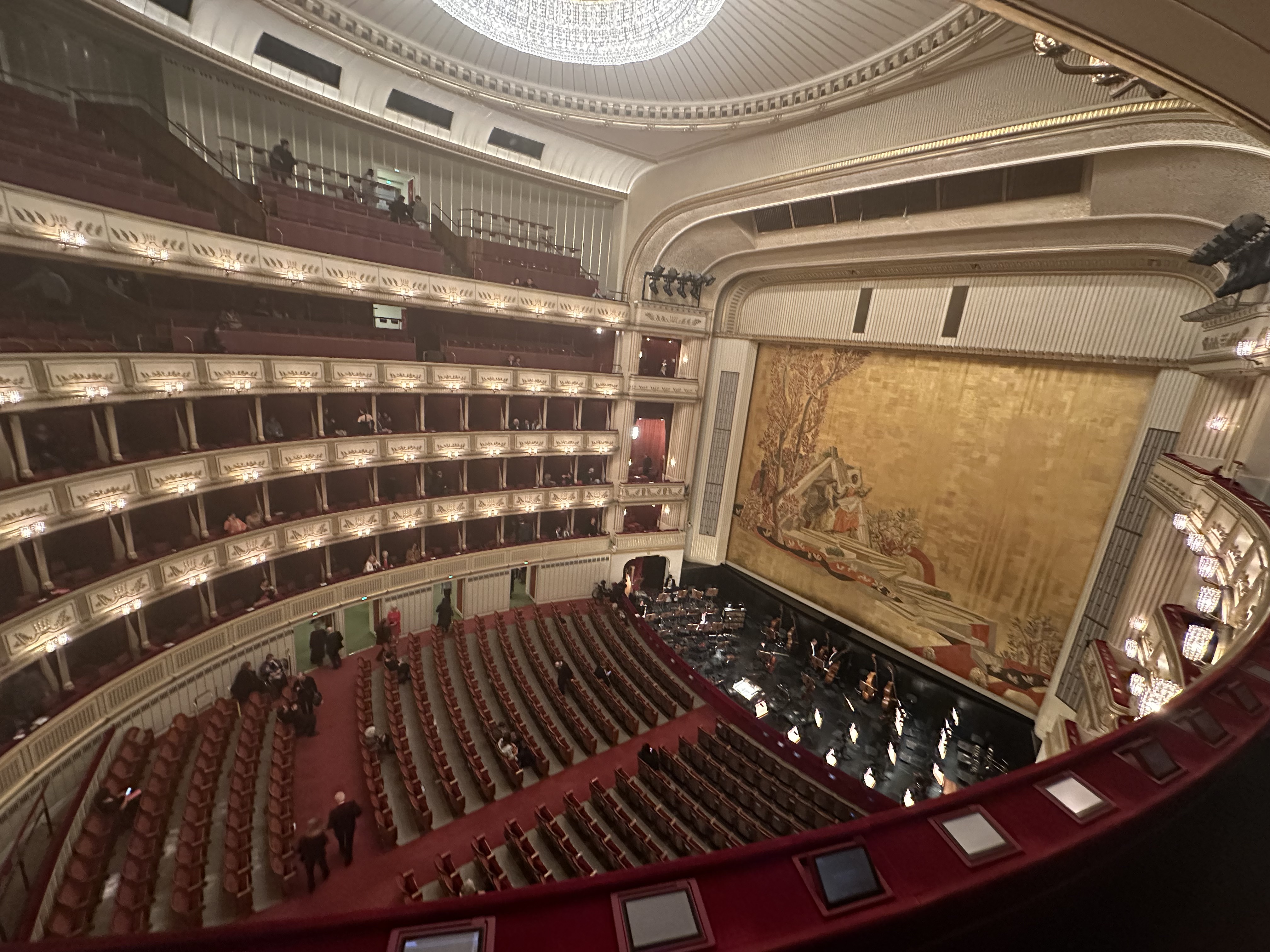 This is what the Opera looks like from the inside!
This is what the Opera looks like from the inside!
- If you go to Lisbon, go to Sintra and rent an open-air jeep that takes you to Cabo de Roca (west most point of Europe) to catch the sunset. Usually there will be guides at the main tourist places like the well and the castle that’ll have these cars and will drive you there (we did it for 10 euros per person and it was super worth it)
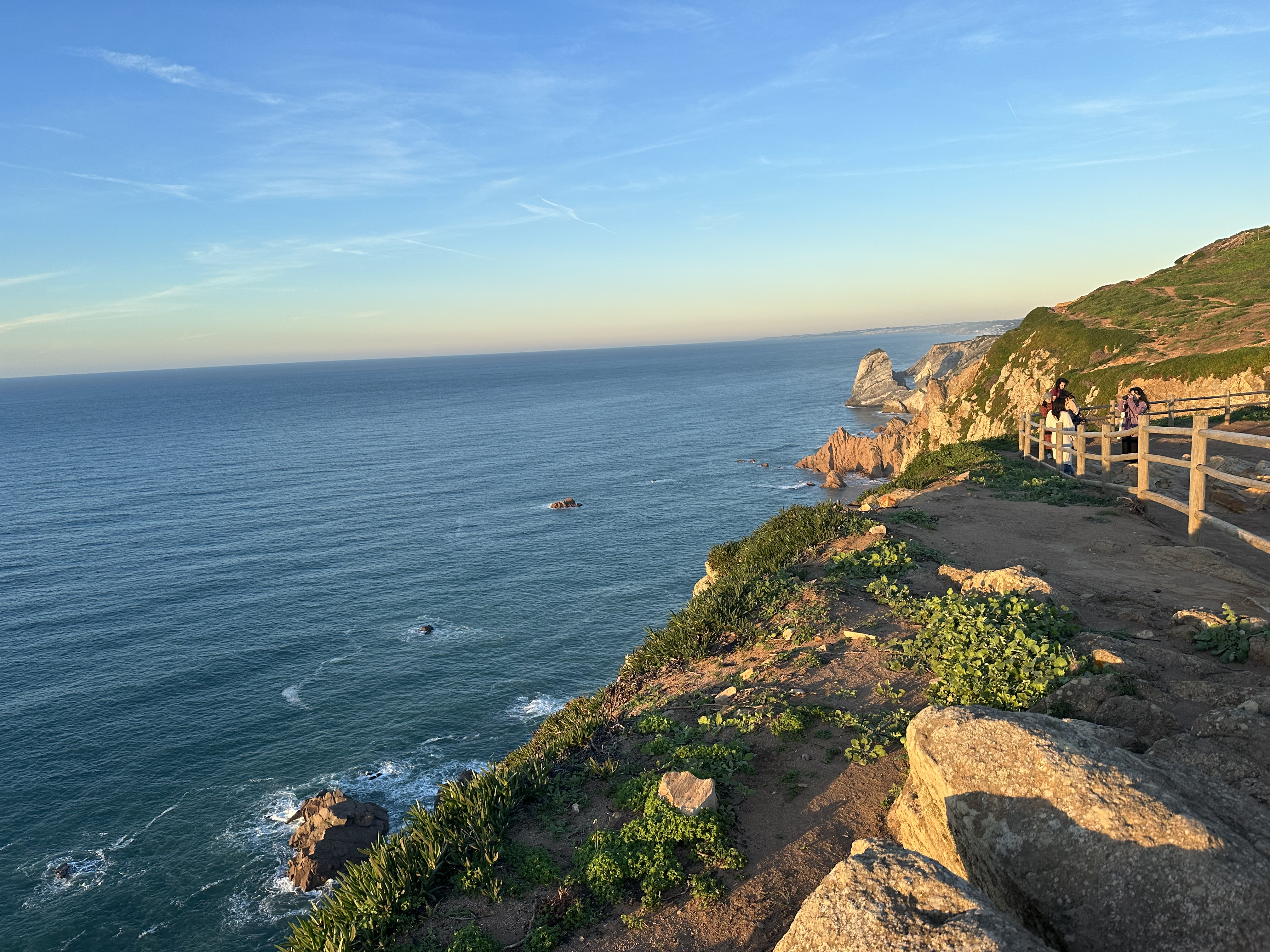
-
Do free walking tours in every city you go too. Use GuruWalk or other apps to find the highest rated ones - they’re a great way to a) learn about the interesting culture and history of the city, b) meet a local that will be receptive, helpful, give you tips etc. and c) meet other people you can do fun stuff with. Some of the coolest people I met were people from walking tours!
-
Kanoe and go mountaineering in Interlaken.
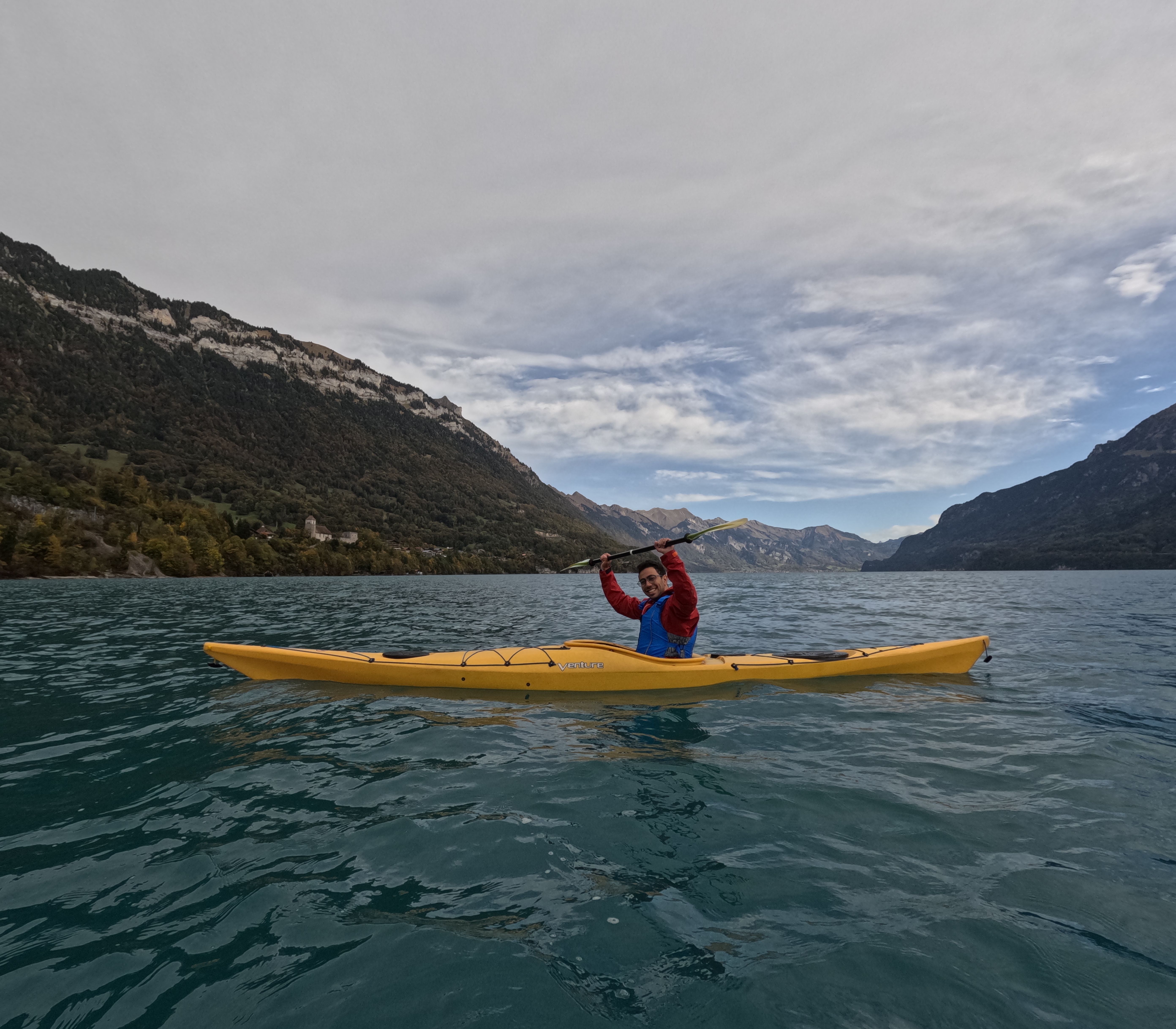
- Spend a whole day in the baths (there are a couple of different ones, but I went to Szechenyi Bath and it was great) in Budapest, they’re incredible.
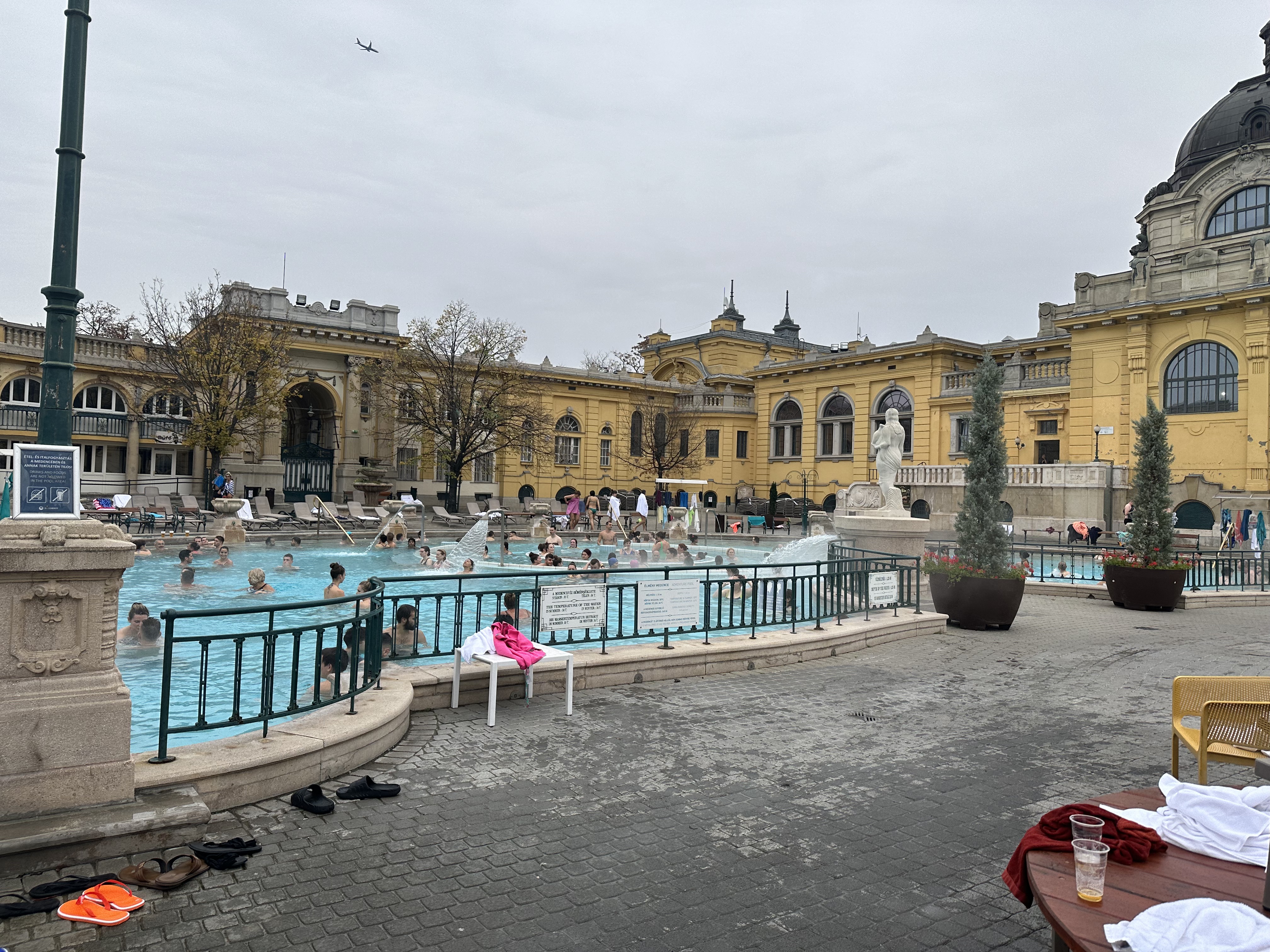
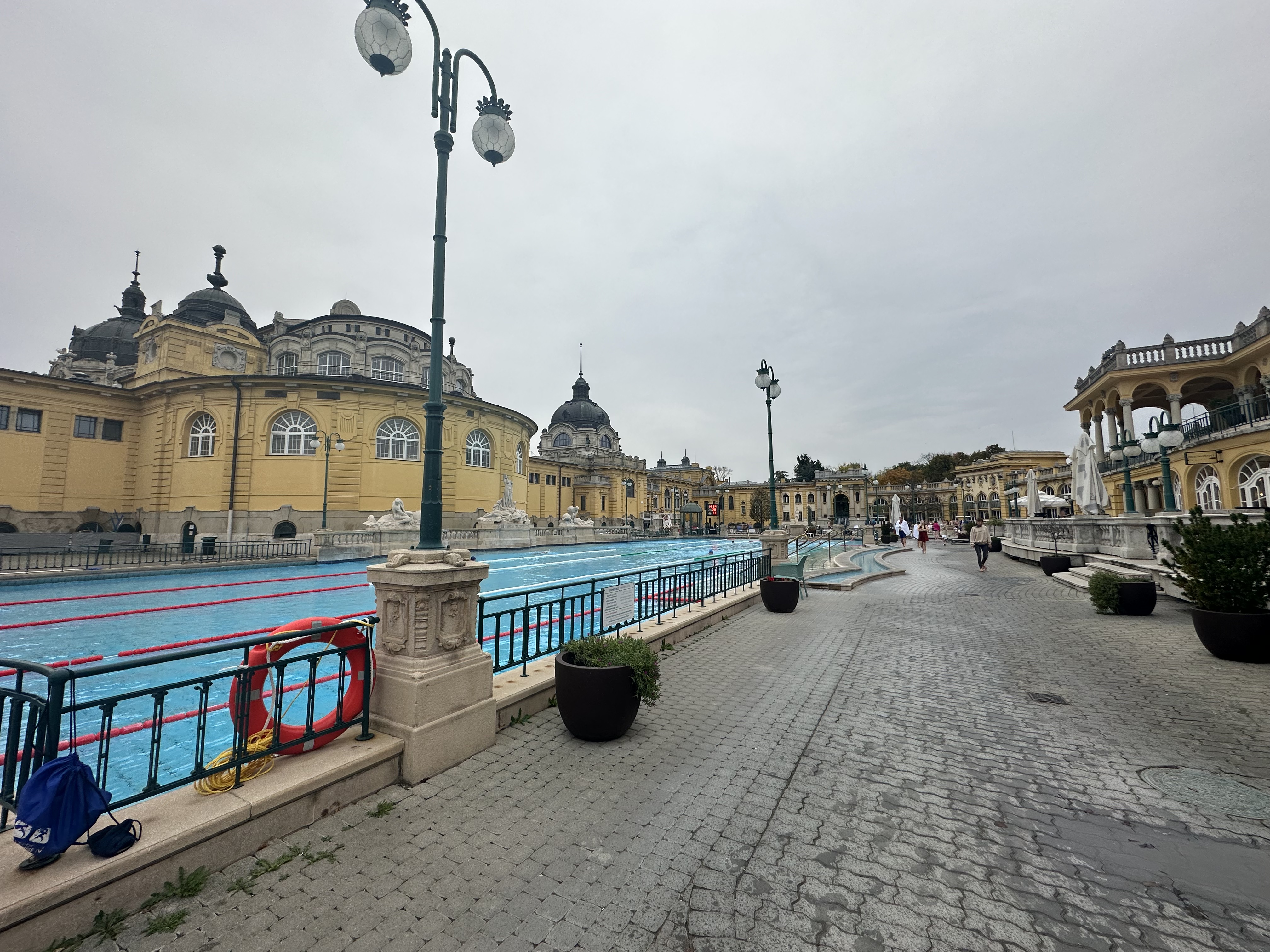
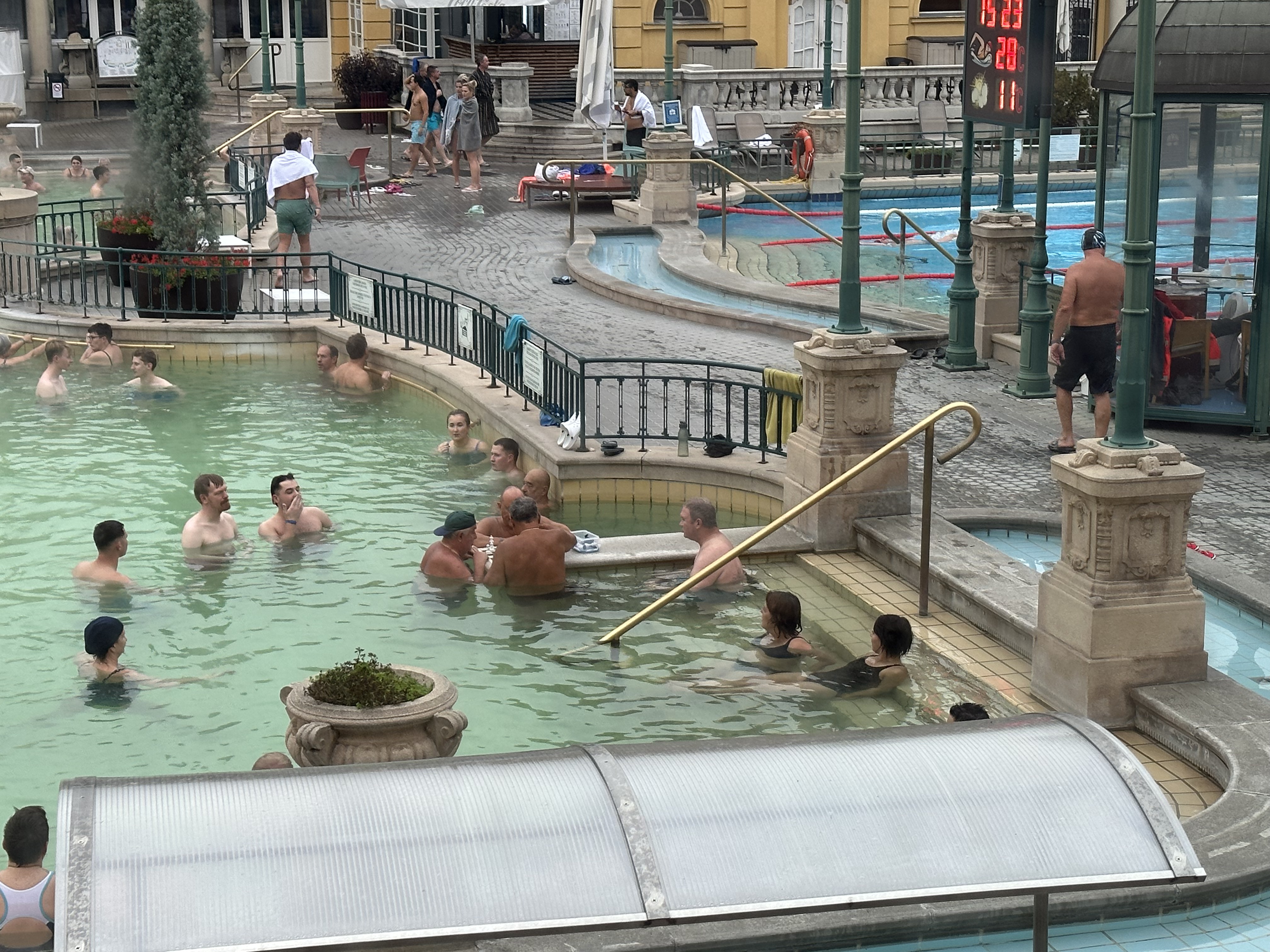
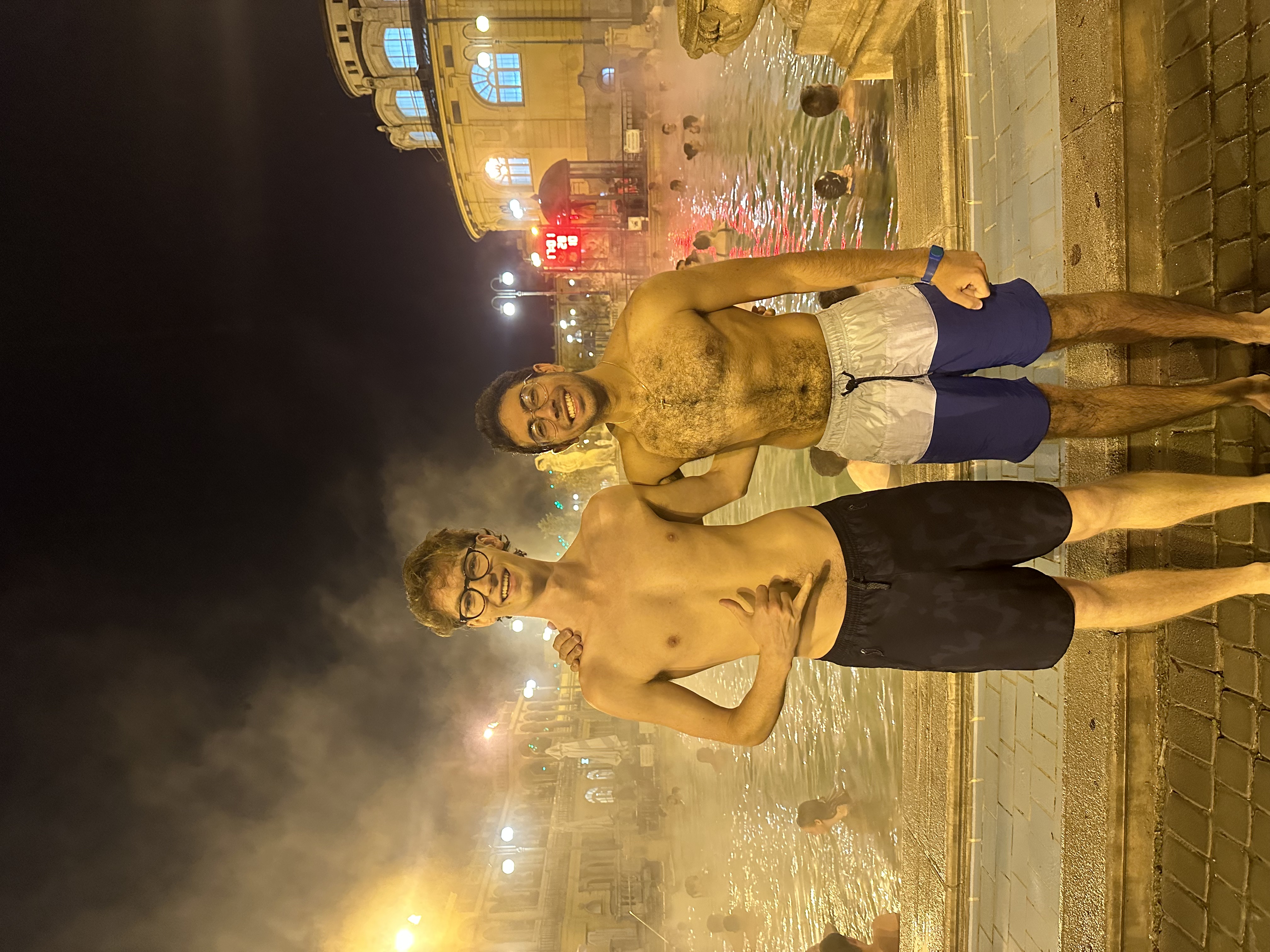
-
visit one of the Jewish concentration camps, I went to Terezin in Prague. It’s very gut-wrenching and sad, but would 100% recommend doing it to learn about just how bad the Holocaust was. I would have loved to also visit Auschwitz but I didn’t end up visiting Poland this time round.
-
Visit Neuwachstein castle in Fussen, it’s literally straight out of a fairytale (it’s what inspired the Castle in Disney World!). The area is very touristy because of the castle, but the views are worth it.
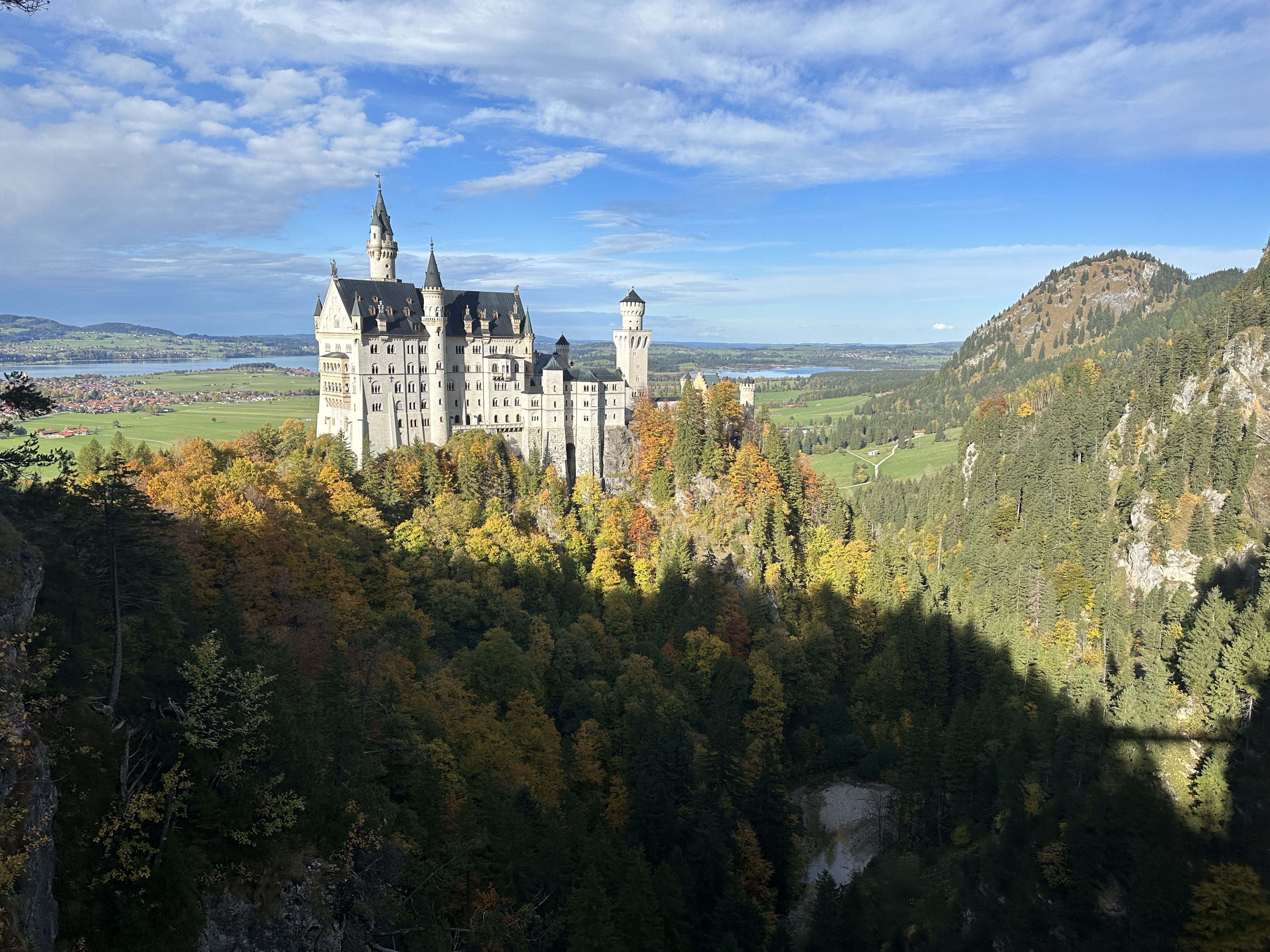
- Churches in all of Europe are incredible, visit as many of them as you can.
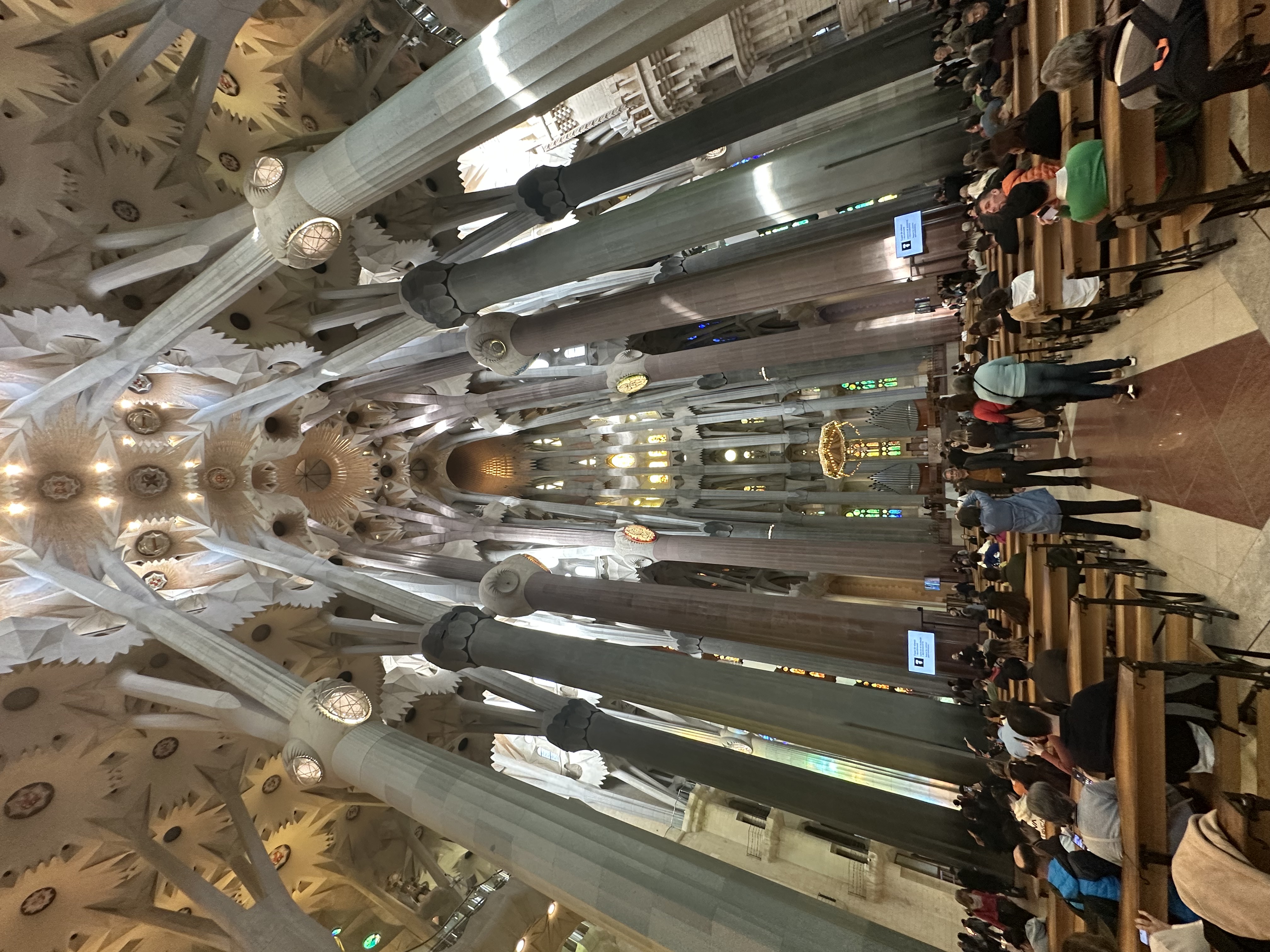 The Sagrada Familia in Barcelona
The Sagrada Familia in Barcelona
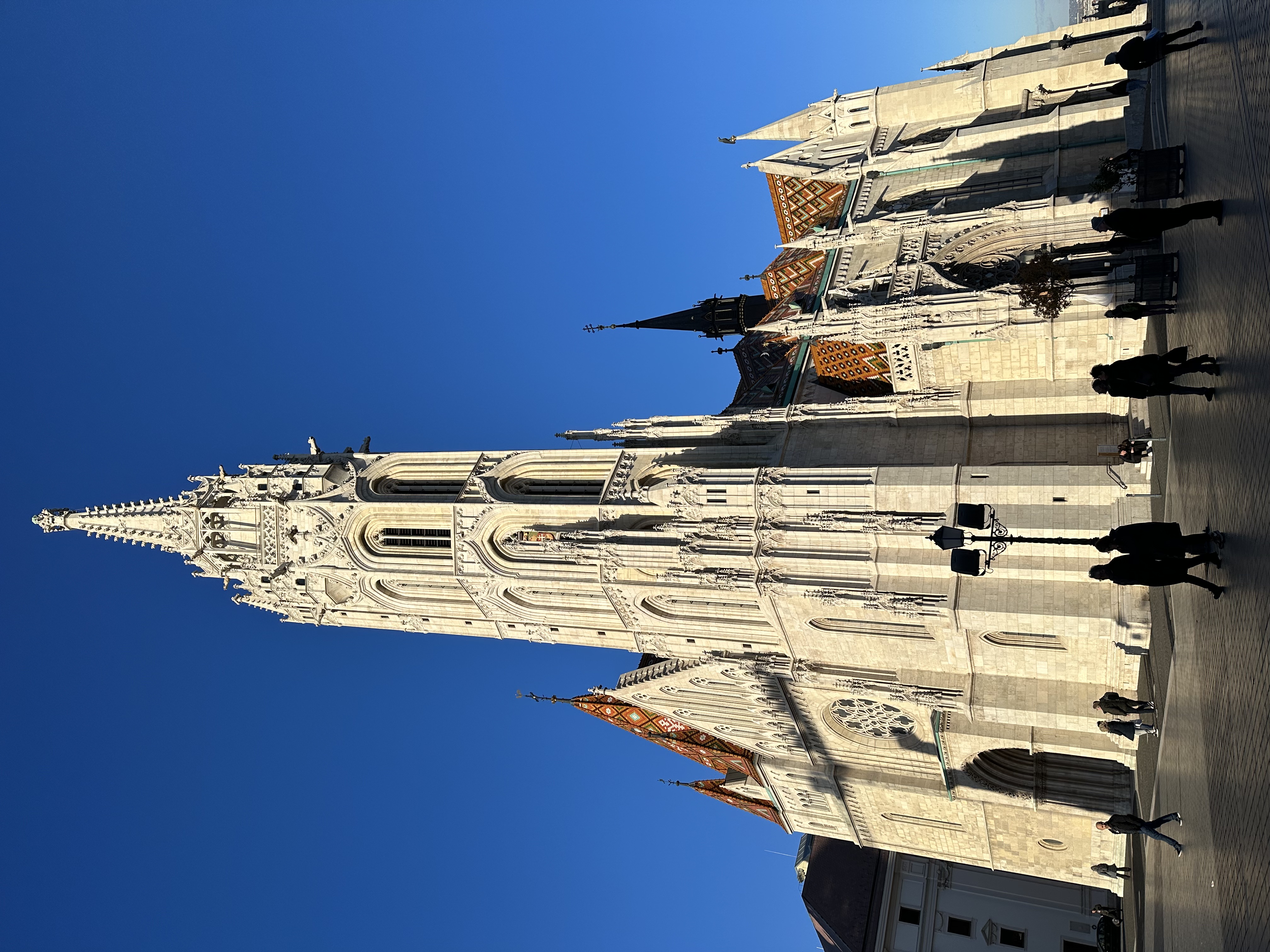 The Matthias Church in Budapest from the outside
The Matthias Church in Budapest from the outside
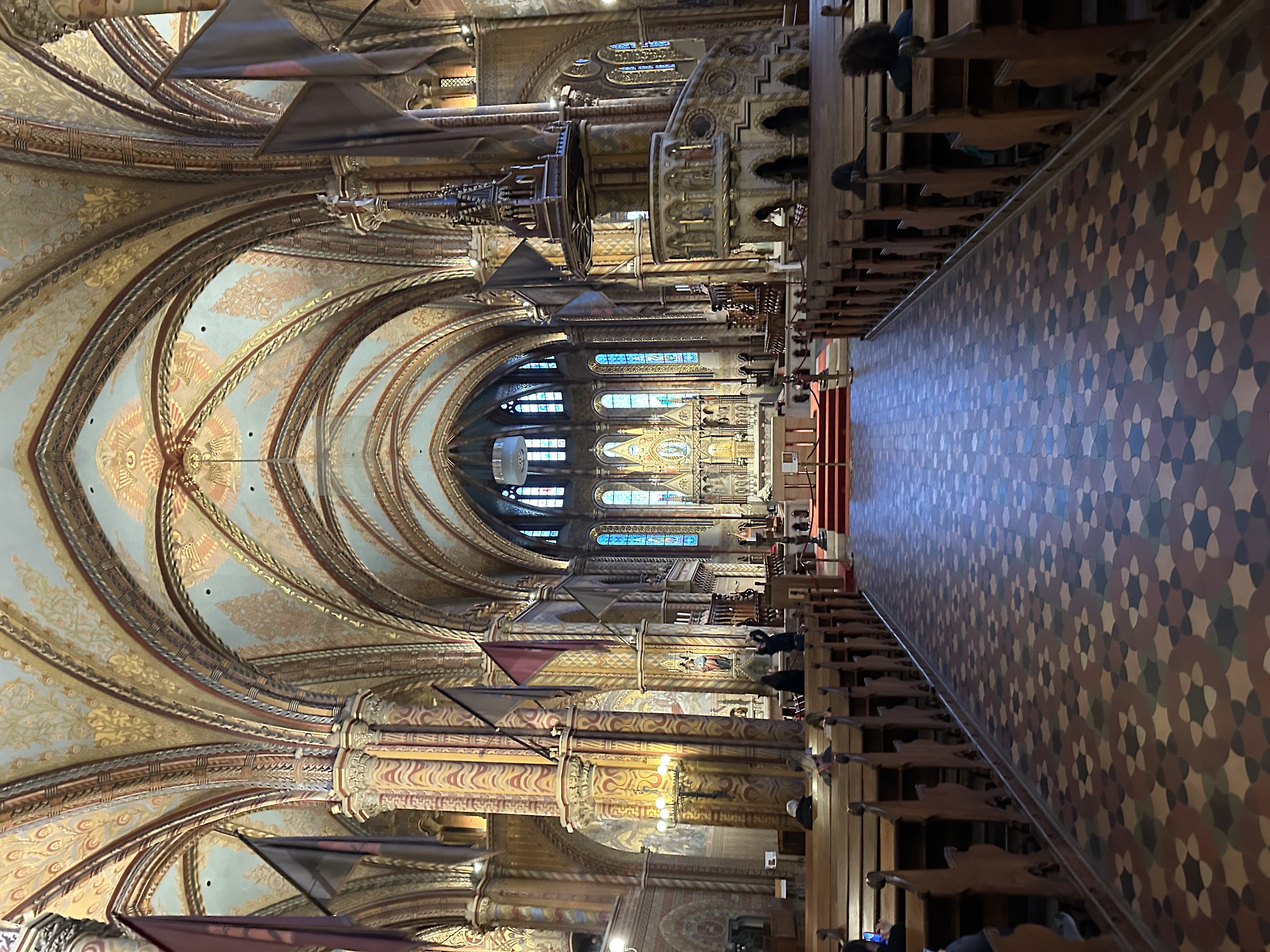 The inside of the Matthias Church (picture does not do it justice but it was one of the most beautiful and unique Churches from the inside that I saw)
The inside of the Matthias Church (picture does not do it justice but it was one of the most beautiful and unique Churches from the inside that I saw)
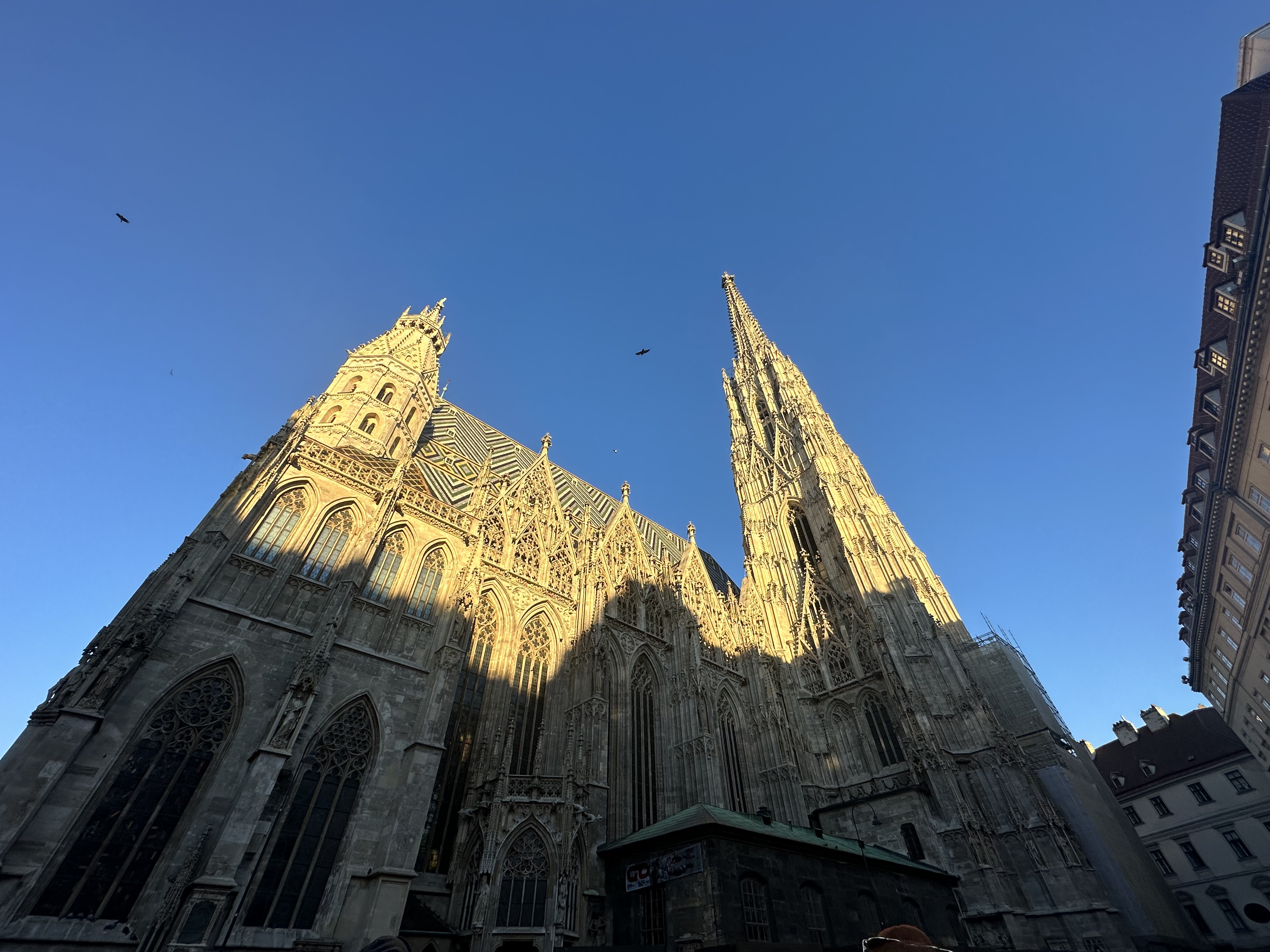 A church in the heart of Vienna
A church in the heart of Vienna
- Visit the Al Hambra palace if you go to Granada. Seeing and learning about the Muslim influence and history of the city was fascinating.
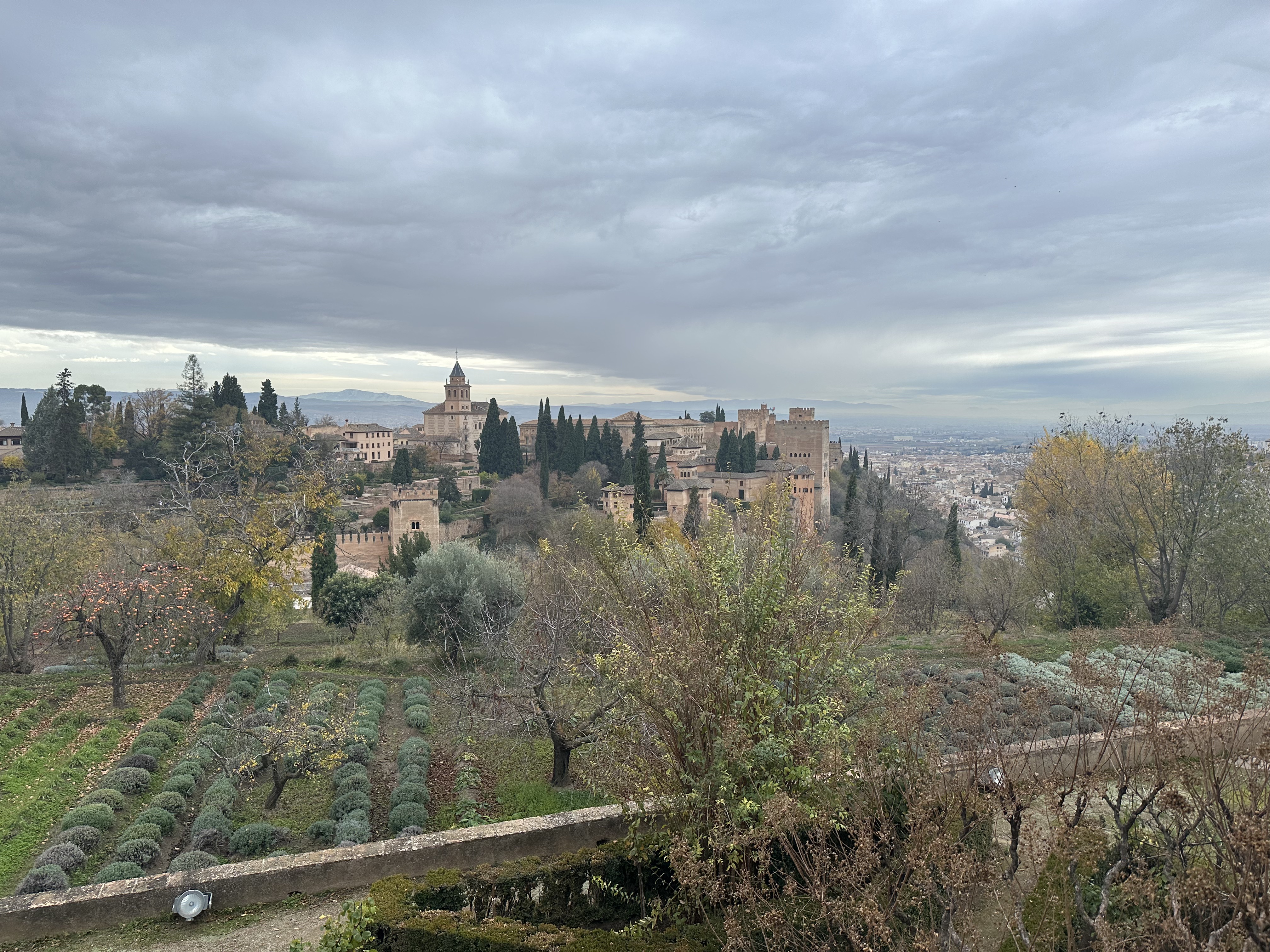 Al Hambra Palace (in Granada, Spain) from the outside
Al Hambra Palace (in Granada, Spain) from the outside
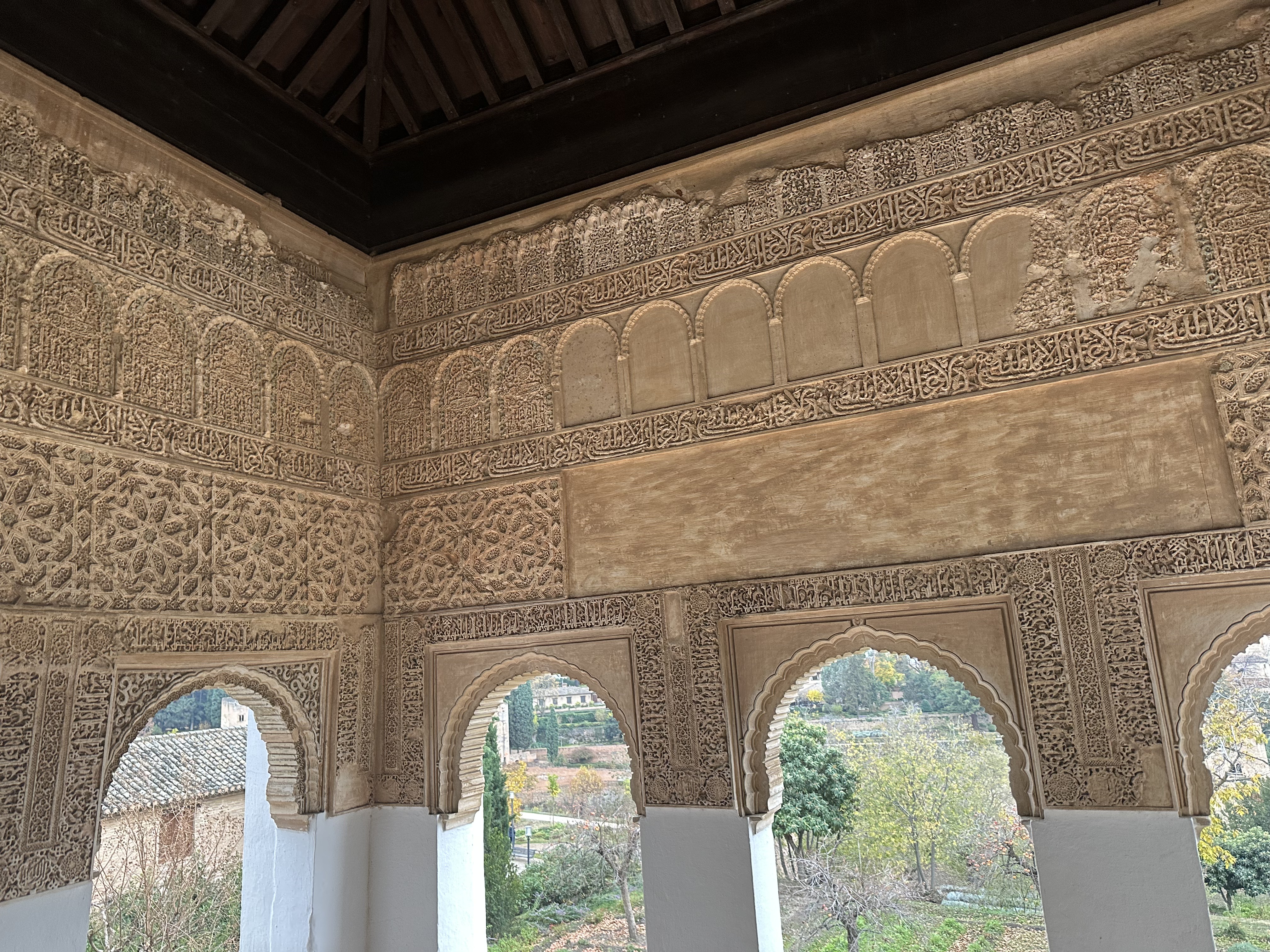 There were Arabic inscriptions everywhere around the Al Hambra Palace, the Muslim influence and history was everywhere!
There were Arabic inscriptions everywhere around the Al Hambra Palace, the Muslim influence and history was everywhere!
- In any city that has a good viewpoint, watch the sunset.
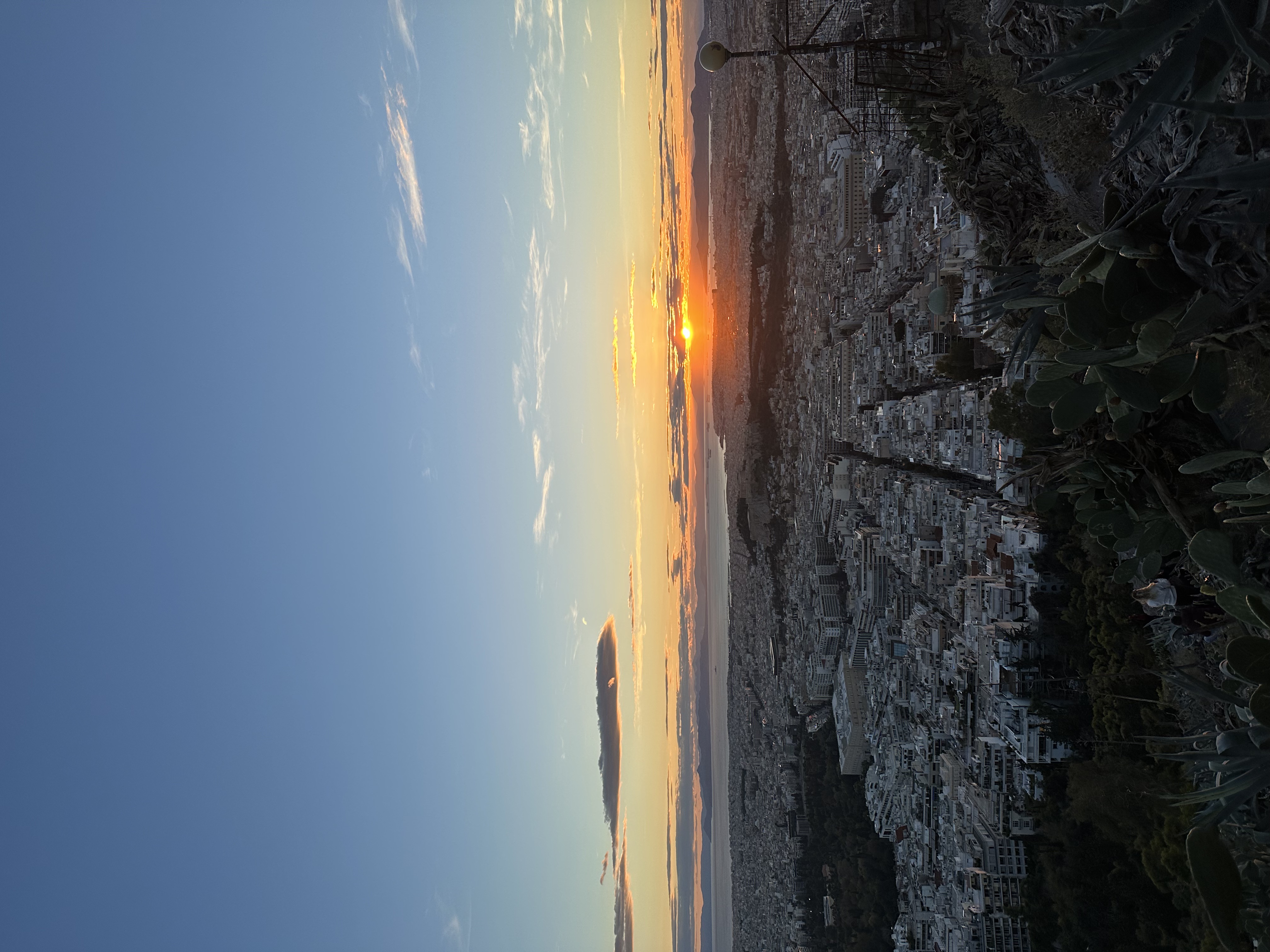 Sunset in Athens
Sunset in Athens
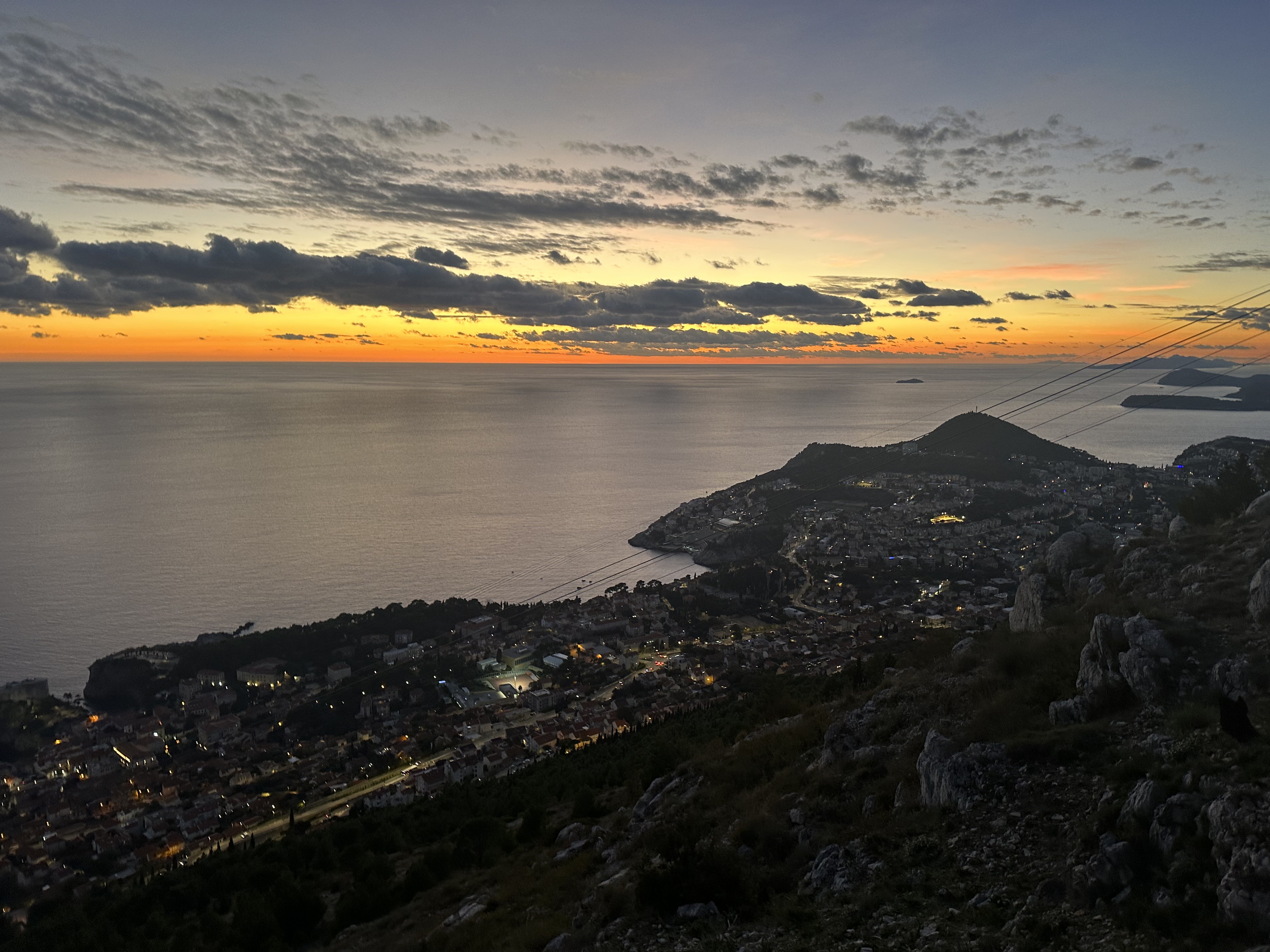 Sunset in Dubrovnik
Sunset in Dubrovnik
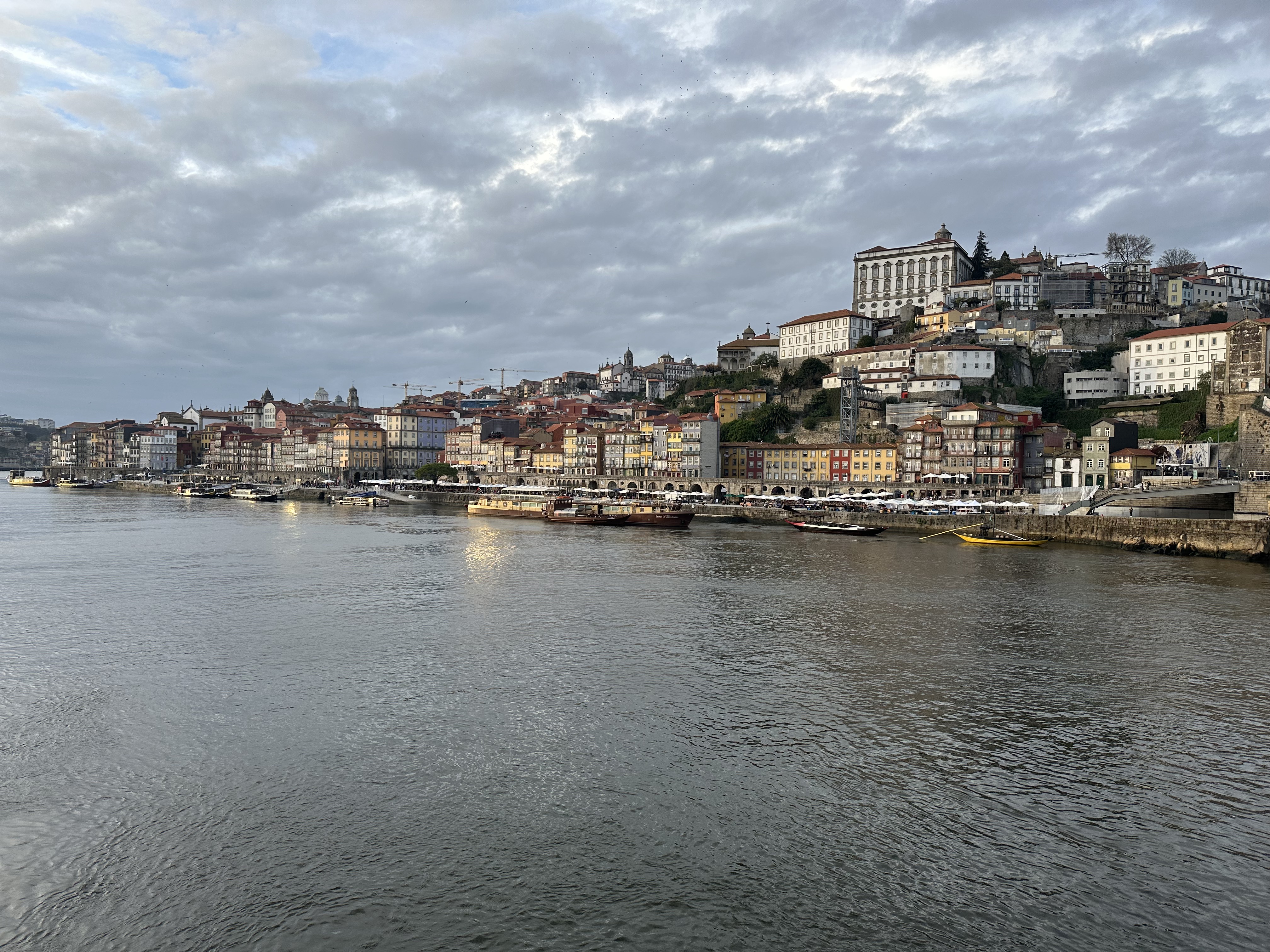 Golden hour in Porto
Golden hour in Porto
- Get lost walking in the city, all European cities are incredibly pretty and just walking it around and soaking everything in was always such a wholesome experience.
some general concrete advice for traveling
-
In terms of overall costs, I would say that if you’re eating out and, in general “spoiling yourself” within reason, you can travel in Europe for about $75-$100 a day (including accommodation, food, experiences etc.). The most expensive one-time costs (not included in this 75-100 calculation) are the flights and if you get a Eurrail train pass (see number 11), but minus those one-time fixed purchases, this kind of traveling is really quite cheap (for comparison, if you’re living in NYC or SF, you’re probably paying at least $2,000 / month on accommodation alone!). It’s also possible to travel way cheaper than that if you really want to, but personally if you’re abroad and want to take advantage of the experiences it’s not worth it. This range is still reasonably cheap and you’ll enjoy the comfort (like not having to cook etc.) it provides and any experiences you want to do.
-
Talk to strangers! Always be the first that says hello, don’t expect other people to and don’t assume they will and I promise your social experiences will be way more worthwhile.
-
Look at hostel reviews before booking, avoid any major red flags like bed bugs. I used Hostelworld and it was great, especially because when you book a hostel, it puts you into a groupchat with all of the residents, so it’s a good way to coordinate, see what events are happening, and sometimes meet people.
-
Always, always pick the hostels which are more social. The best hostels are the ones that in addition to being clean etc. have a lot of social stuff planned, so it’s much easier to meet and connect with other travelers. The worst hostels are ones that don’t have anything planned and the common room is empty and sucks - basically a hotel but you share the rooms. Always choose the former hostels, even if you don’t feel like being social.
-
Optimal room size imo is 4-6 with in-unit bathrooms, any bigger and it starts to get crowded and smell/
-
If you’re tired of socializing, people will respect your privacy if you’re in your room and have headphones and probably won’t bother you with conversation.
-
Always travel with a good eye mask and ear plugs for when you sleep. Some people will snore, some people will be noisy, and the last thing you want to do is sleep poorly when you’re exhausted from traveling.
-
You’ll walk a lot in Europe, I was averaging 20-25k steps a day easily. And food portions are so small that you can literally lose weight without trying to. I was not, so had to be mindful to eat more, otherwise I could have easily lost 5-10 lbs if I was just on auto-pilot mode. Just something to be mindful of.
-
Buy packing cubes. They are a life-saver for keeping your stuff organized.
-
If you’re traveling in the off-season, you can plan everything (accommodation, excursions etc.) last-minute, if you’re not, (i.e. in the summer or for an event) you’ll need to plan at least 3 weeks ahead (or earlier depending on how popular the event it).
-
Traveling in the off-season means things are usually more empty, quiet, and cheap. Traveling in peak season means there’s more action, probably more events, and you’ll meet more people but it will be more crowded, expensive, and you’ll have to plan ahead. Places I would recommend visiting during peak season (even if it’s on the tails of the peak season) that I visited during off-season are probably Croatia (Split, Dubrovnik etc.) and Greece (Athens and the islands).
-
Get an e-sim that has unlimited data, I used Holafly (was $90 for 2 months) and it worked pretty well.
-
If you’re traveling around Europe for an extended period of time, I’d also recommend getting a Eurrail pass. It’s worth it if you are
- planning things last minute
- want to keep your schedule/open flexible
- you’ll be taking the train a lot Most of the Northern parts of Europe have good train infrastructure, but some of the less developed countries (like the Bulcans, more Eastern Europe) will not, and you have to use buses. If you’re going all over and traveling for a long time, I’d recommend getting the pass. If you’ll be in a specific region where there isn’t good train infrastructure, you might be mostly taking buses so it might not be worth it.
-
If you don’t speak the local language, usually the most receptive locals to talk to are the younger ones (they usually speak English and are more open)
-
Take lots and lots of pictures! Even if you don’t feel like it, I promise you’ll regret not taking more later.
-
Some days will be very slow and some days will super action-packed. Learn to enjoy each and know when you want to take a break.
-
Don’t leave your shampoo/body showers in the toilets, they will be used or taken.
-
I never had an experience where any of my stuff was stolen in any of the hostels (minus my shampoo which I forgot in the bathroom), but I still locked my valuables - all hostels will usually have lockers that you can lock your stuff away in (but usually you need to have your own lock). I usually locked away my valuables, but left my clothes and other stuff out and nothing was ever stolen.
-
Do not buy a backpack larger than 45 litres, I promise you your back will regret it. I used the Osprey Farpoint 40L and it was great.
-
If you’re traveling for a long period of time (1+ months), it’s better to pack light than to pack heavy.
-
There will always be large periods of dead times most days (2-4 hours), so if you have work you need to get done, or you want to work out or do something else, there’ll usually be an opportunity to do so (I worked out 3ish days a week when I was in Europe).
-
Traveling can get exhausting very quickly, so try to spend at least 3 days in each place you visit. Anything shorter back to back and you’ll burn out quickly. The most annoying part of traveling is having to pack and unpack everything every time you move and if you do it too frequently, the fatigue from all the moving and traveling can really start to accumulate.
-
It’s ok to take rest days if you’re tired to do non-travel related stuff! I took a bunch of them if the weather wasn’t good, if I needed to plan urgent stuff, or if I was just exhausted. Especially if there’s bad weather and you can’t do indoorsy stuff, that’s a great time to take them when you’re tired.
some interesting things that happened to me
An incomplete list of fun stories from the trip.
- got a flat tire in twisty, narrow roads of the Dolomites in the small town of Gudon in Italy. Tried getting into contact with someone for 6 hours over the course of 2 days. Saw the same lady leaving where she worked on the first and second day who tried (but failed to help) twice. Spent 30 minutes trying to explain to the operator which town we were in Italy, who kept thinking we were in Germany, until I realized I was telling her the name of the town in German because many of the northern towns in Italy speak German. By some miracle, the tow truck found us.
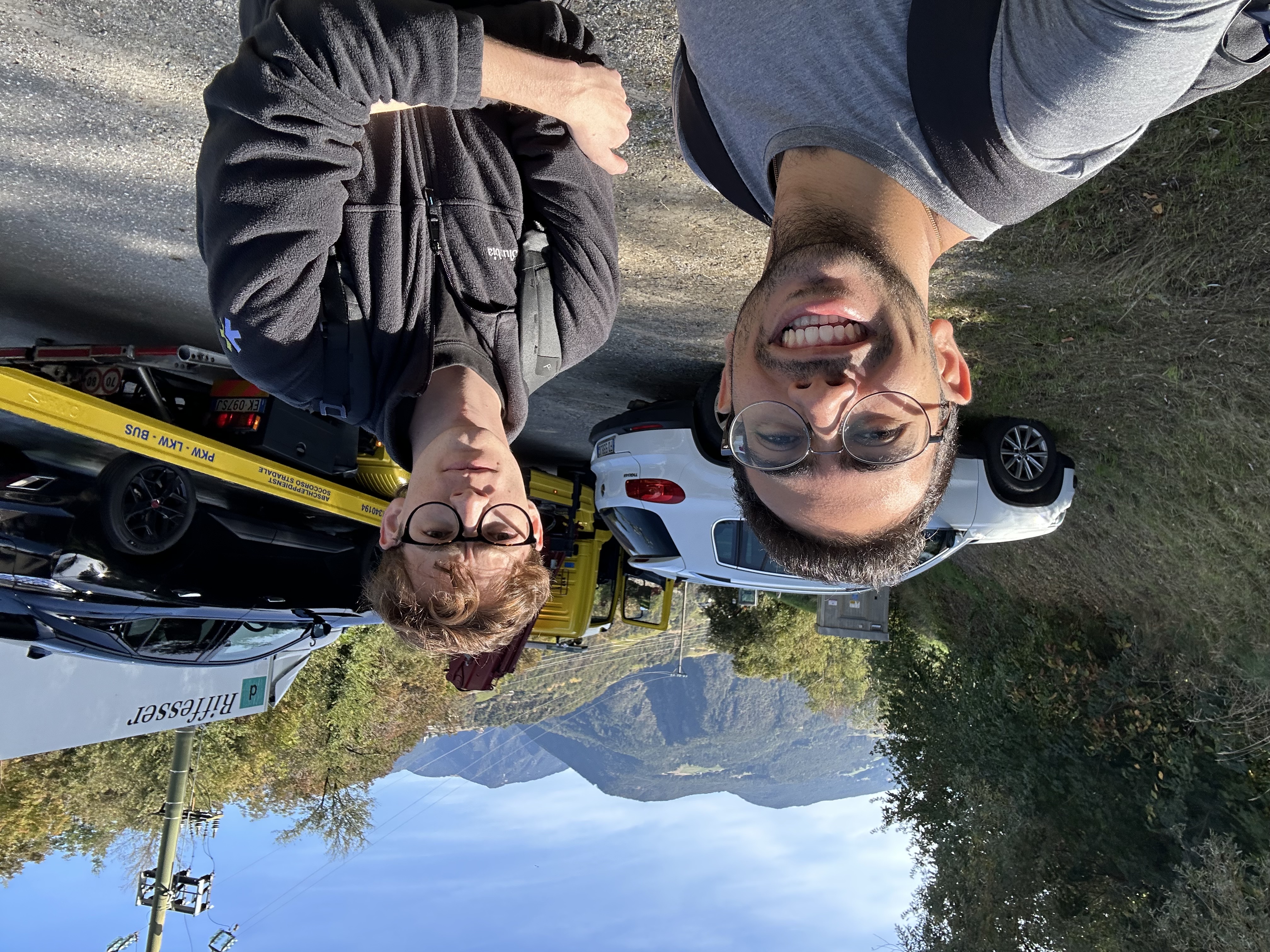 When the tow truck miraculously arrived after 2 days of trying to get in contact with someone
When the tow truck miraculously arrived after 2 days of trying to get in contact with someone
-
raved (sober) in a warehouse in Budapest in the middle of nowhere with no cash until the sun came up
-
(lowkey) fell in love in Vienna
-
woke up at 4am to drive and hike 1.5 hours in the pitch-dark to see one the most beautiful sunrises of my life in the mountains of the Dolomites
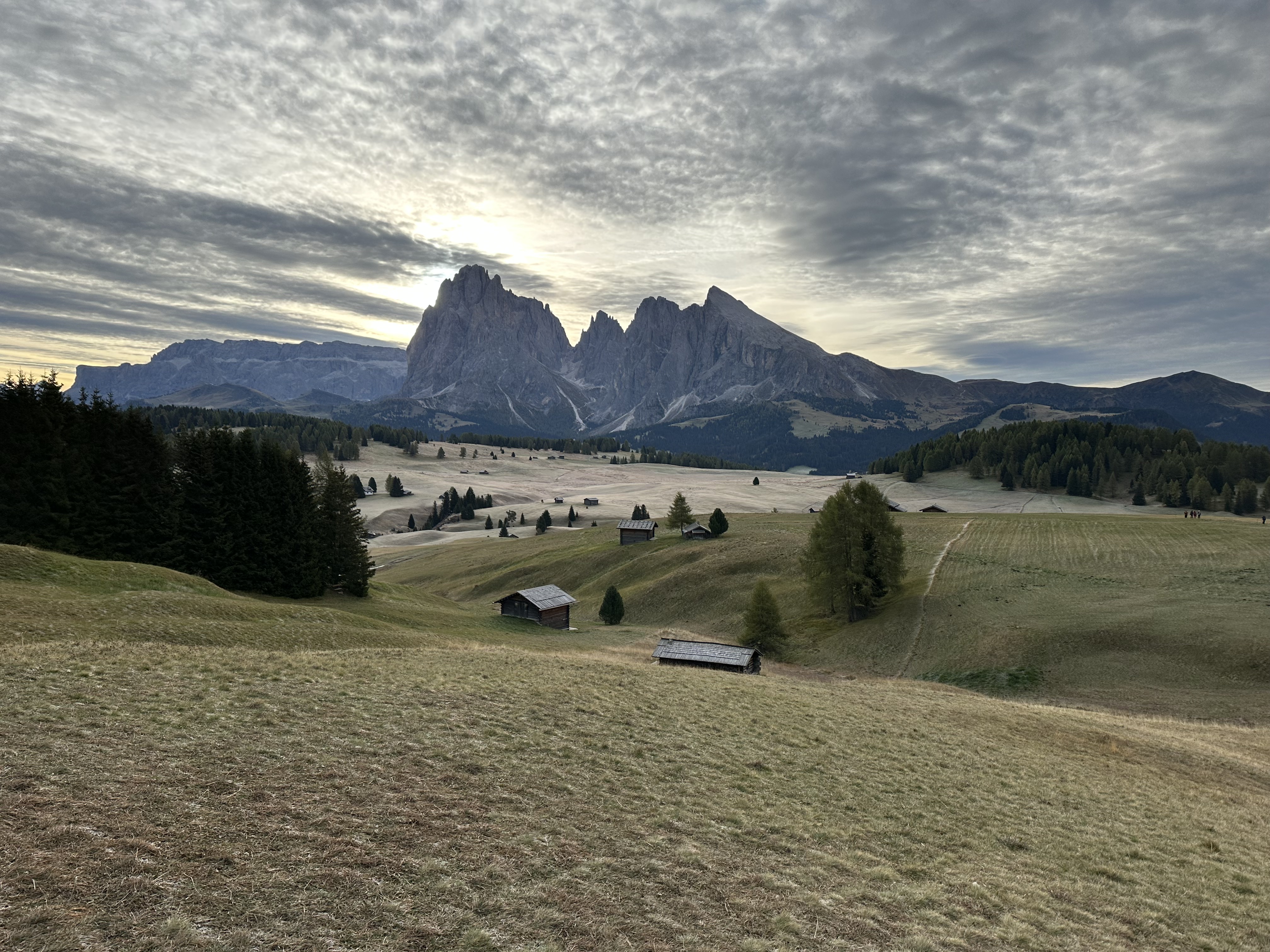
-
went cliff diving in Interlaken with 3 (newly-made) friends. had no towel or swimming suits so had to dry off with my shirt and wear a jacket zipped all the way up after cause I was wearing nothing underneath it.
-
nearly fainted while grabbing breakfast in Prague (still have no idea how or why this happened)
-
spent 3 hours talking with an Australian Jewish friend I made about the Israel-Palestine conflict
-
spontaneously walked past a cinema which was playing “Killers of the Flower Moon”, and the person working at the cinema let us watch the film for free because we asked
-
got aggressively rejected asking to interview a couple of older people in Switzerland
-
vibed for a full day in the Budapest baths (saunas, pools, and everything in between) discussing relationships, charisma, and social skils. enjoyed the warm baths in the cold rain.
-
nearly crashed into a large group of people while biking with 2 people on 1 bike in Barcelona (I was driving and the other person sat in the tiny front basket)
-
got one of the best haircuts (my friend called it the “Jeff Whittek”) of my life in Athens
-
created (arguably) the best dance circles most European clubs have ever seen. convinced many strangers to show us their incredible moves, and contributed a few of my own.
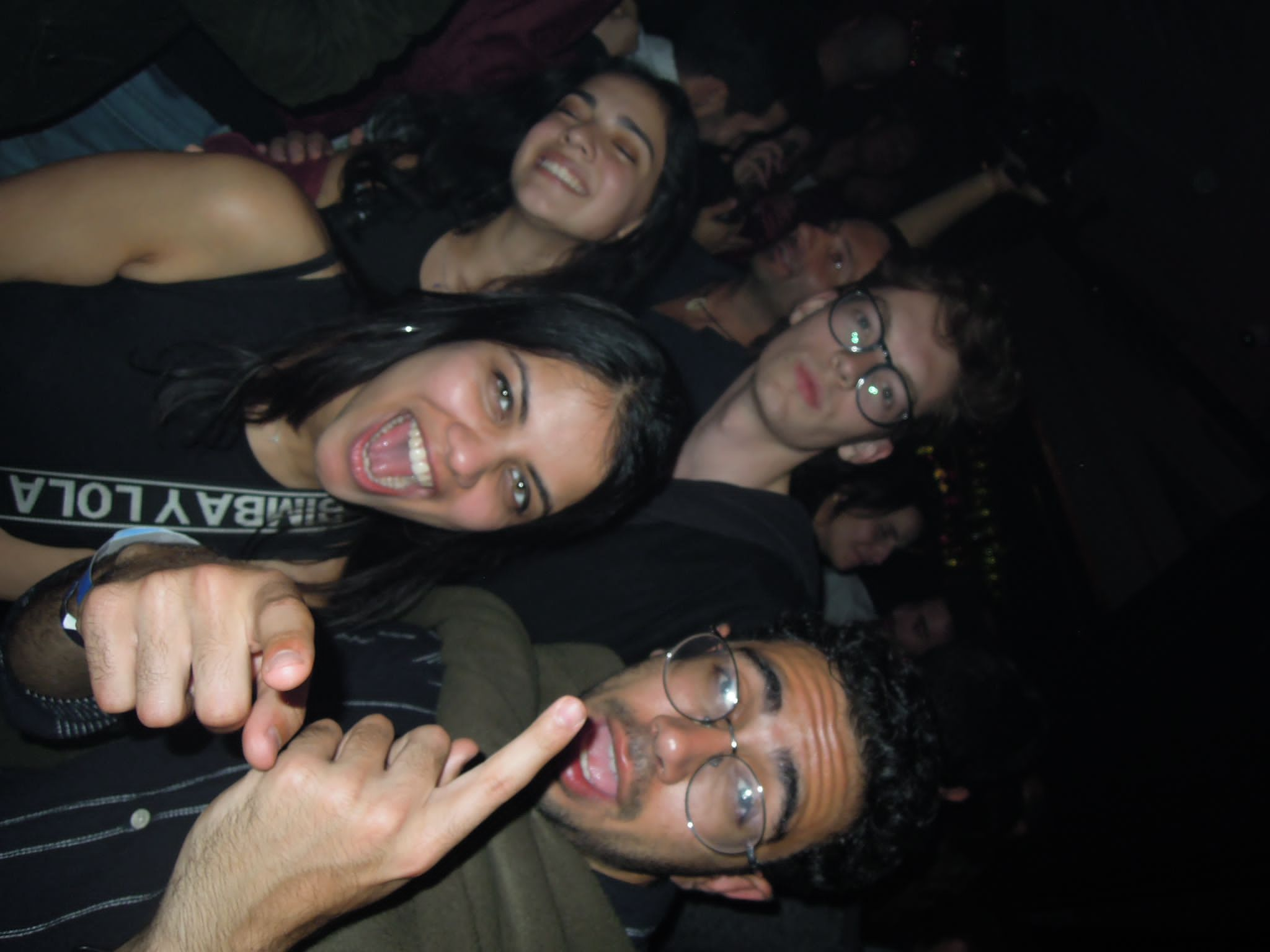
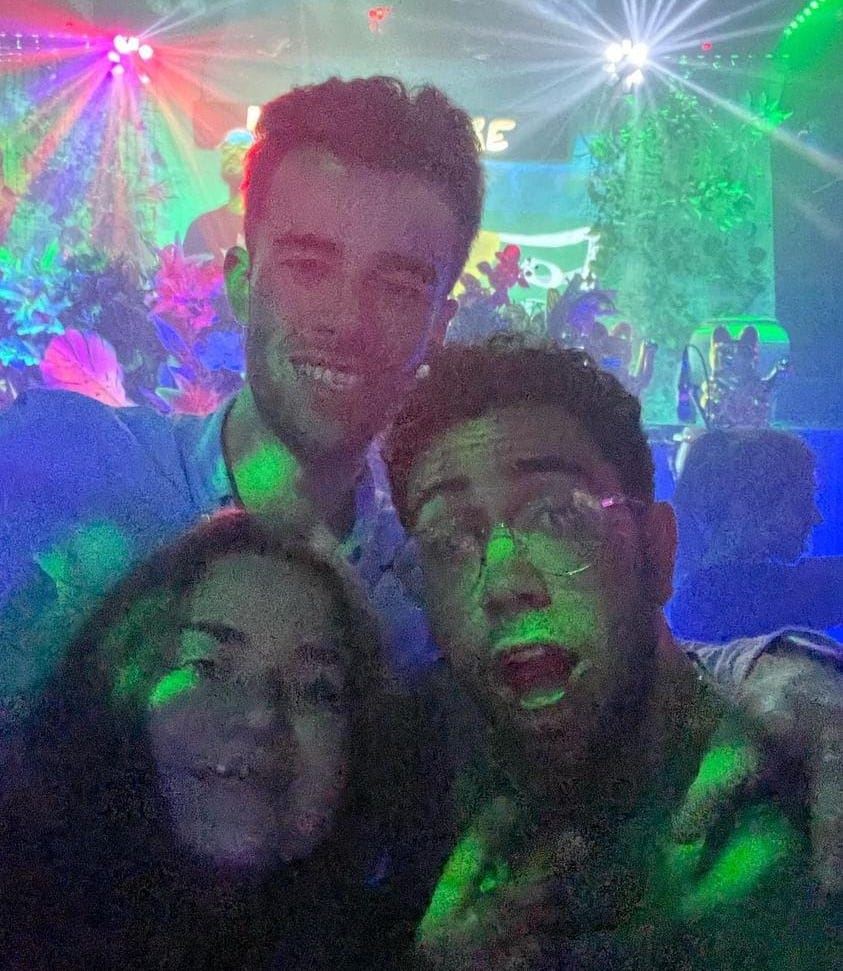
-
learned that my canoe instructor in Interlaken, Switzerland was almost going to work in British politics with the Prime Minister! Then ofc proceeded to spend an hour discussing British economics and politics.
-
asked if I could join a complete stranger at a restaurant in Prague for dinner. We had one of the most interesting and revealing conversations about European culture and upbringing! (we talked about her experiences growing up in a small town in Germany and how shocked she was at how different life was in a big city in Brazil, where she did an exchange program in high school).
-
ran into multiple people I met at different points in my journey multiple times in different countries by accident (it’s a small world)
-
witnessed the craziest spectacle I’ve ever seen in my life in a bar on a Sunday evening in Barcelona (will refrain from elaborating because I’m still trying to forget it lol)
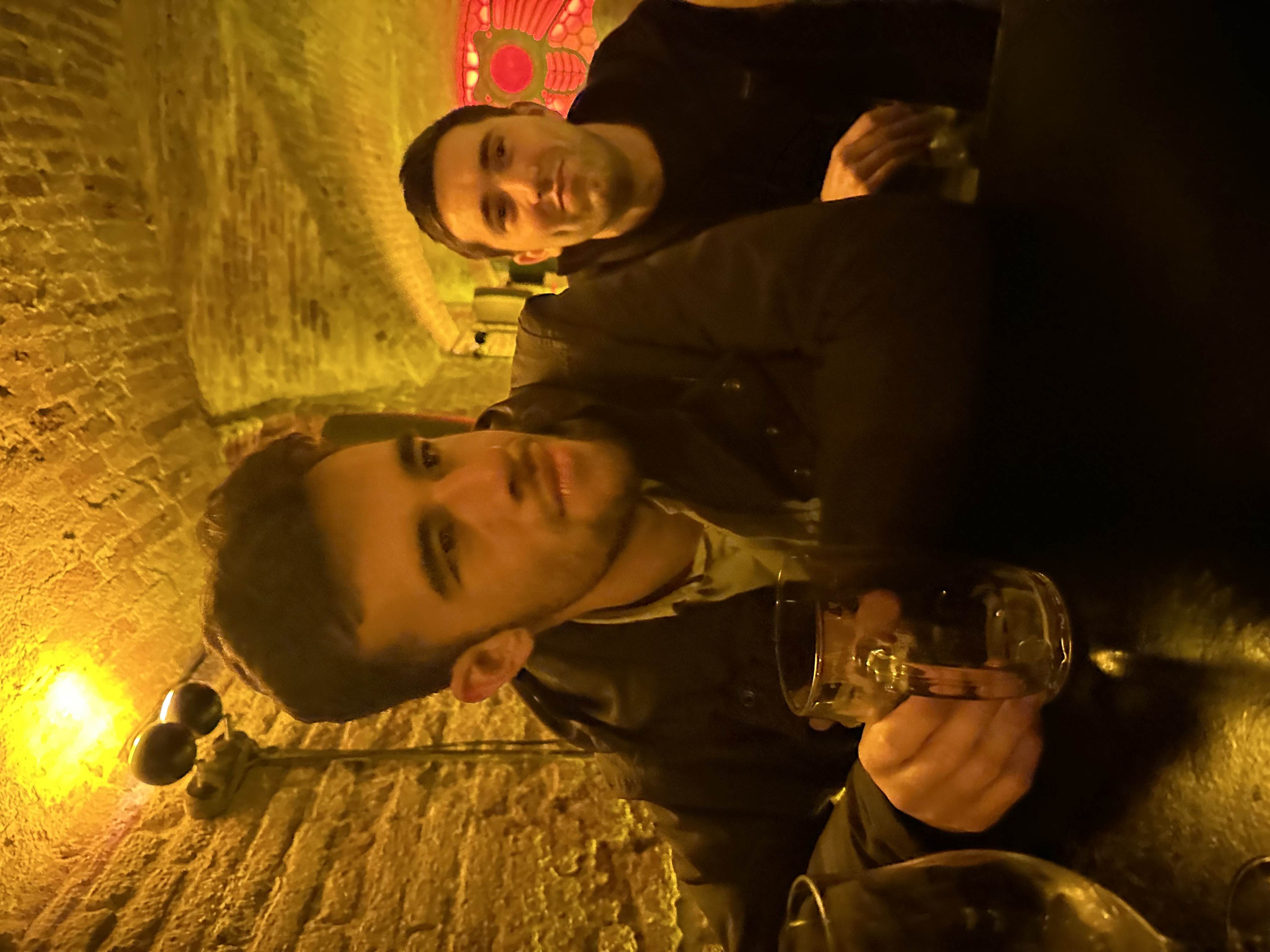 My friend’s face watching this happen (he couldn’t look away)
My friend’s face watching this happen (he couldn’t look away)
- walked through a free Palestine protest in Vienna with a new friend, which prompted an hour-long discussion on the topic
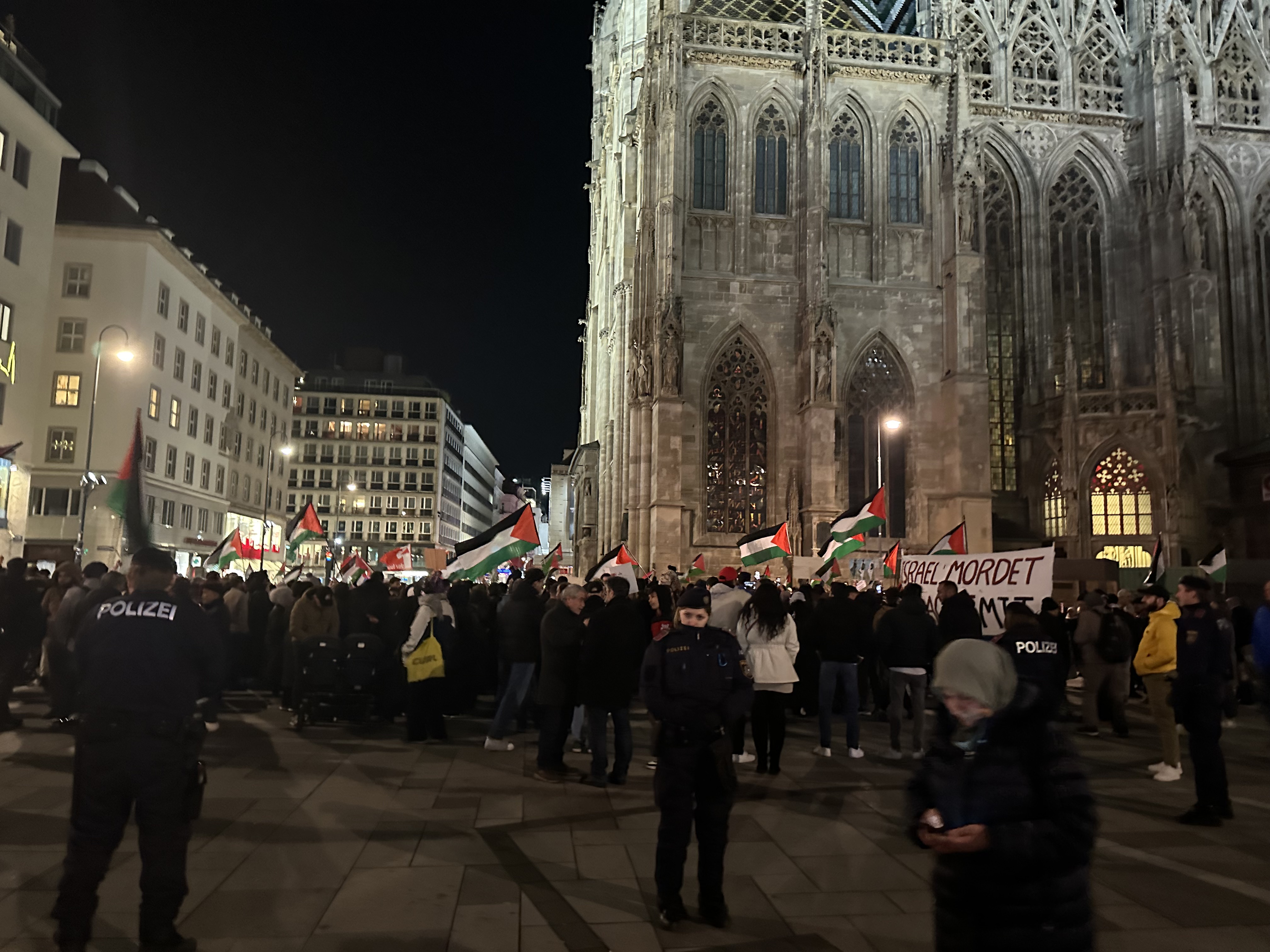
-
fought mosquitoes throughout the night in a hostel in Seville. got told off by a girl for waking her up from trying to kill the mosquitoes at 4am (I thought I was being quiet)
-
met a girl whose grandparents were both Holocaust survivors
-
discussed education and policy while petting a dog in a bar in Budapest with a British friend I made who studied at Cambridge
-
bantered in French with a friend I made who spoke very little English - realized I needed to practice more French lol.
-
accidentally ran into one of my best friends from college in Prague and we hung out together for two days

-
heard some incredible traveling stories from a Brazilian friend I made about how he lived with Amazonian tribes in South America, lived on a farm in Turkey with no money, and nearly got killed
-
slept on a train, woke up in the wrong country because even though I was initially on the correct train, the front and back of the train had split mid way and went on different paths…and I was on the wrong side
-
had one of the best Bosnian sandwiches of my life in Split
-
ate at a local, authentic Croatian restaurant that had a Ratatouille quote at the front of their menu
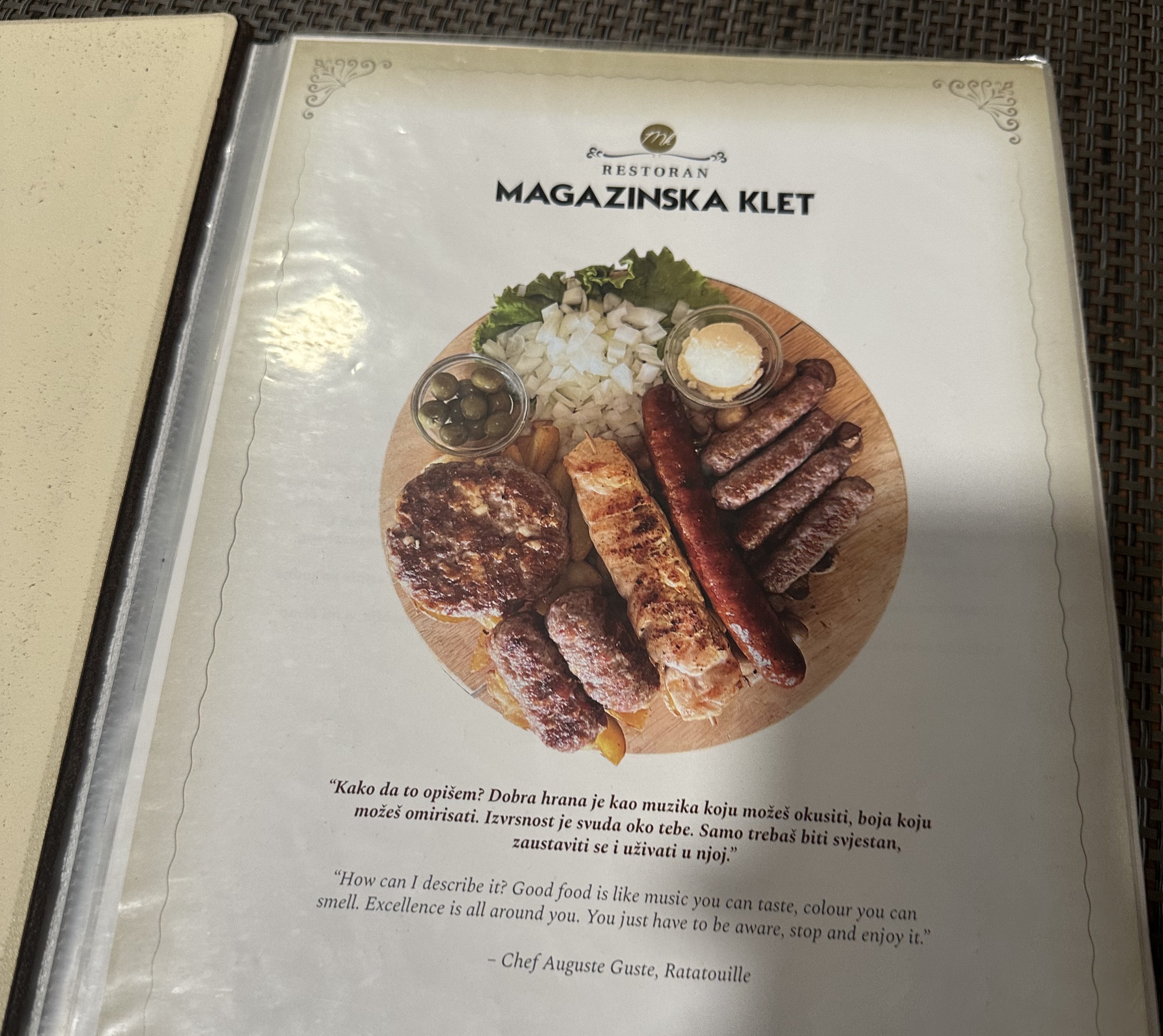 Oh you thought I was kidding?
Oh you thought I was kidding? -
learned some incredible Australian, British, and South African slang from long discussions with new friends (some of them are here)
-
argued (in a good-natured productive way!) about capitalism and social welfare with a Brazilian friend I made in Switzerland
-
learned about the politics of many countries
-
experienced gyms in multiple countries, which was interesting because the types of people in the gym revealed a lot about cultural diets and body preferences! Take a guess how jacked people were in the countries where they only ate carbs and no protein :)
 Working out with a new friend in Dubrovnik!
Working out with a new friend in Dubrovnik! -
met a girl in a bar in Lisbon who described herself, unprompted, as “quite the polymath”
-
met someone who studied at my same College in Barcelona! Exchanged some crazy hostel stories
-
spontaneously played Padel tennis in Lisbon
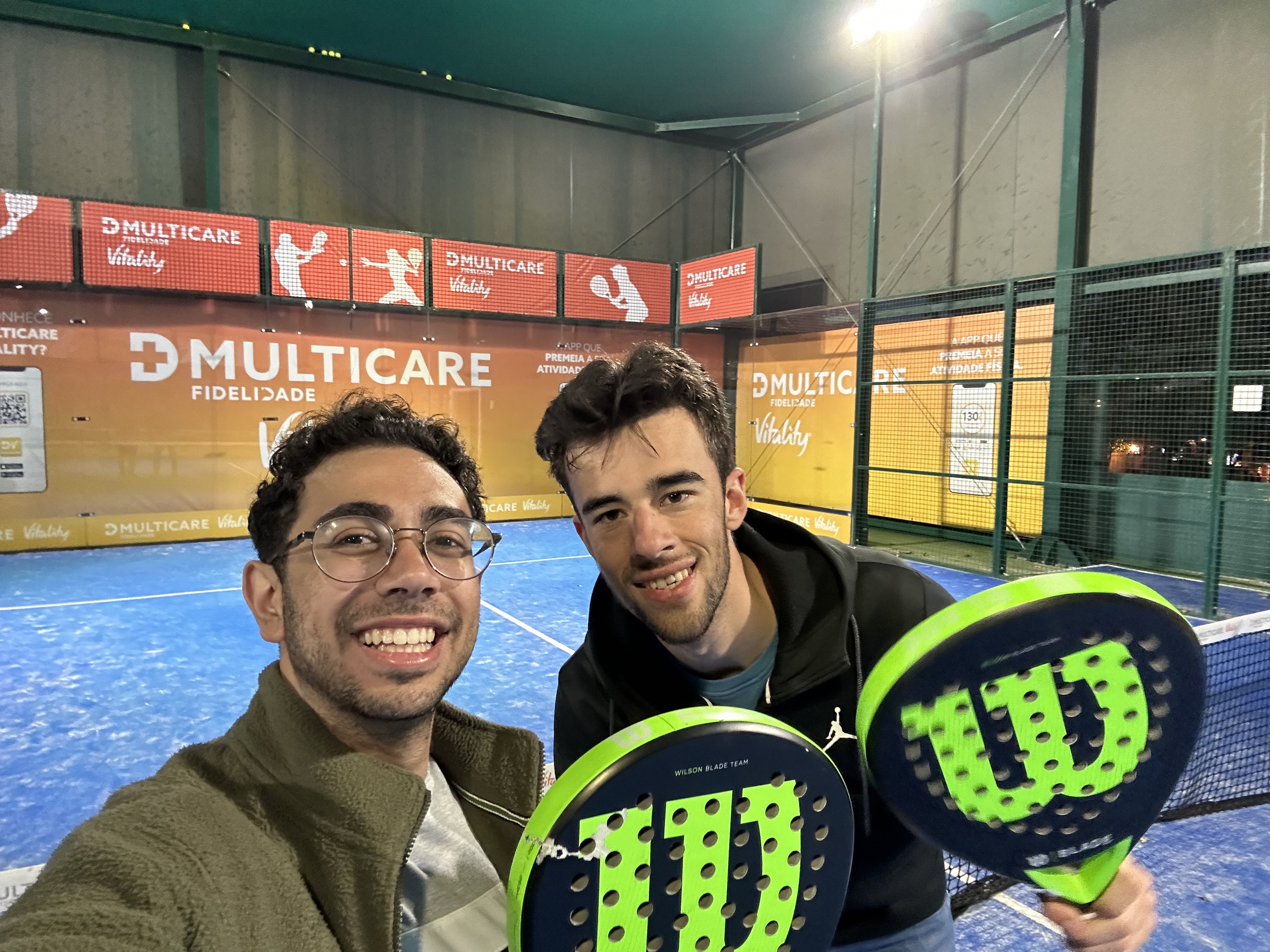
-
had a competition over dinner in Dubrovnik over who could come up with the most wild, insane reality TV show ideas (not to brag, but I won and it wasn’t even close)
-
developed a genuine curiosity and appreciation for history and culture that I thought I had lost in school
-
cried with laughter too many times
-
had some great personal reflections about work, life, and culture (some listed below)
my biggest takeaways from my trip
warning lol: I make a lot of generalizations here
The privilege of being American (or living in America)
-
The amount of cultural mindshare that America has abroad is massive. People know about the culture, they understand the social media references, they take an interest in the politics etc.
-
You can’t imagine the number of walking tours I did where we were looking at some 500-year old cultural monument, talking about its rich history etc. and then the tour guide would say “and oh this is where Tom Cruise shot Mission Impossible, or this is where X movie or famous person did Y.” I think it’s a great example at how prolific American culture is exported around the world. I’m guessing it’s the combination of the influence of a) Hollywood b) American-owned products and services (Apple, Google, Microsoft) that are used by everyone anywhere and c) social media content online being very Western, and especially American-centric
-
Often you would tell someone “I’m American” and instantly they’re interested and want to know more, not to mention that they of course speak English, but you probably don’t speak their local language
Europe and America are more different than they are similar.
I thought that, broadly, the West was more similar than it was different, but I no longer think this is true. Although they share a lot of similarities, here were the major differences
- The culture around how people live their lives in the US and Europe is very different. In the US, the concept of “work” is the most culturally dominant force in people’s lives, in Europe this is not the case.
-
In the US, people define their identities by what they do (what’s the first question you normally get asked when you meet someone - “why do you do”). People prioritize and focus on their work in life (how many times do you go out, i.e. do something social on a weekday?). People work way more here than in the rest of the world. This mentality is ingrained in the culture, it’s the whole idea of the “American dream”, which is if you work hard, you can make it in this country.
-
In Europe, this is not the case. If I would describe broadly speaking, that most people in the US live to work (which is to say that work runs their lives per se), then I would say in Europe people live to vibe. In most parts of Europe, the pace of everything is slower, people prioritize all the social and family aspects of life over work, they work way less (there are more holidays, things are closed on Sundays), and in general work is not the most dominant force in their lives.
-
One of the best examples of this is when I asked an 18-year old in Switzerland what “gives him a sense of purpose in life”? and he responded, not with a career-oriented answer like “I want to be a doctor” or “I want to make a lot of money”, but with “I want to start a family and have kids.” Ask most 18-year olds in the US this and I would surprised if they said something similar
-
Now of course I’m making some broad generalizations and there are many exceptions to this rule, but on average, I’ve found this to be true
-
Note, I’m not saying that one way of living is better than the other, it’s not, each has its pros and cons on the individual level (i.e. more social mobility opportunities vs having a more balanced life) and on the societal level (i.e. access to goods and services), but it was interesting to really experience this from living in and talking with people in Europe.
- In Europe, people value culture and learning languages more than in the US
-
In the US, people do not value learning languages as much as in Europe. I think it’s something to do with the fact that the US is geographically so removed from the rest of the world, and there is no need to learn another language (so people are not forced to pick it up) has made it such that most people just don’t speak other languages.
-
In Europe, there are so many countries right next to each other with different food, culture, and languages, that you’re kind of forced to learn them. Most people in Europe spoke 2-4 languages and could easily hold a conversation in any one of them. In fact, many times, I forgot that the person I was speaking to was holding a complex conversation in their second or third language, I would not be able to do the same for some of those conversations in French or Arabic (I speak French and Arabic).
-
This is particularly sad because learning a language is much more than just learning to “translate your words.” Learning a language teaches you about the culture and history of a place in a way you would not be able to appreciate otherwise. Also most importantly, even though many people did speak English, speaking to someone in their local language opens them up in a way that a second or third-language does not. Something something “If you talk to a man in a language he understands, that goes to his head. If you talk to him in his own language, that goes to his heart”
- People in Europe do not “think in” or “live in” English
-
This sounds incredible ignorant to say, but I was shocked that most of the cities in Europe used, communicated, and depended on their own languages to run their lives more than English. Meaning, English, as a language and tool for communicating, is secondary to the local language for most parts of their lives.
-
Obviously, people speak in their local language and not English, but also most aspects of their life are in the local language! Signs are in the local language, people read books and newspapers in the local language (for example if you go to a bookstore in Germany, most of the books are in German, there may not be any English books at all!),
-
Again, because of the way that it is in the US and because a lot of leading world research, parts of the internet, and global work depends on English, I assumed that English was as central to people’s lives in Europe as it is in the US, but at best, the people that are fluent in English will usually only speak it for work and the rest of their “regular life” is in their local language, and at worst they don’t speak English at all!
- With the exception of a few major cities in the US (like NYC and LA), people in Europe dress way better
It was both surprisingly easy to get around in Europe with English, and at the same time, hard to connect with locals
- This is related to points 2 and 3 above, but most of the locals who were receptive to talking were usually younger locals who spoke English
- Many of the older locals were, in general, less receptive, less open and willing to, and less fond of conversing and exchanging stories in English. Again, there are many exceptions to this (one category of which is tour guides, which is why I recommend walking tours so much to learn about the culture of the city), but from my experiences, this is the common pattern I noticed
Everyone is living in their own bubble. The “traveler” bubble was very different to the “tech” bubble
-
The average person in tech is very career-oriented - looking for a good job, starting a company, they’re motivated by their work etc.
-
The average person in the traveler bubble is very “experience-life” oriented - they’re motivated by traveling to see new places, experiencing new things, understanding new cultures etc.
-
In tech, most people derive meaning from their work, in the traveler bubble, most people view work as a means to an end (which is to travel), their equivalent of career growth is “experience-life” growth: visiting more places, trying new things etc.
-
It’s always fascinating entering new bubbles because you realize how different people live their lives. Often times being in a bubble for a long time de-sensitizes you to this, and it’s easy to feel out of touch with the rest of reality
I didn’t realize how important the way you physically looked was
-
When people know nothing about you or have nothing to go-off, the first thing they will judge you by is how you look. Is this person well-groomed? Are they well-dressed? How do they carry themself? Do they look like they just woke up and put no effort into their appearance?
-
The concept of pretty privilege is not new, but I don’t think I had really internalized it until I, sadly, caught myself making those same judgements for people I met or people I talked to. This is very shallow to admit, but I realized if I’m judging people by how they look and that’s informing my opinion of them (whether I go talk to them, what I think of them etc.), they’re doing the same to me. If someone was more attractive, I was, at least initially, more likely to go talk to them, or want to be their friend or find them interesting or funny. So I should take care of myself and pay attention to the way I looked because others were doing the same to me.
-
Funny enough, it turns out that there is this whole internet movement called “looksmaxing” where people extensively talk about all of the different ways you can “max out your looks” and become the most attraction version of yourself. Some of the stuff is a little over the top, but a lot of the content people put out in this domain is actually practical advice that most people would benefit from.
- Also interestingly, many of these communities are usually more focused at men, partially I think because culturally, women are encouraged and held to a higher standard (i.e. why girls learn to do their hair, and put on makeup when their younger etc.), in general, so I think women learn to take care of themselves more than men early on
You can just become the person who has the most fun
- In any setting, you can just become the person who has the most fun, who suggests wild ideas, who actually does them, who has a good time no matter what. Some people are more naturally inclined to this, some are not, but anyone can become this type of person.
Solo-backpacking is doable and you shouldn’t be scared of it!
Concern #1 it’s going to be lonely
- I’ve talked a lot about how staying at hostels and doing stuff means you meet a lot of people, so if you want to meet, talk to, and do stuff with other people, I promise there’ll be plenty of opportunities!
Concern #2 safety
- it’s much less dangerous than most people think. In general, most hostels are safe (and you can look at the reviews to see if people have weird experiences), and while traveling, as long as you are being careful, trusting your instincts, and not doing obviously stupid stuff (like flashing your cash), you’ll be fine
- Note, I appreciate I’m a guy and am privileged to some extent about this, and I can see how as a girl, it could be more scary, but I met many, many female solo-backpackers, all of whom massively enjoyed it and had run into no problems - maybe you have to be a little more careful in certain settings, but for the most part it’s much less scary than you might think
The simplest thing anyone can do to lead a more interesting, spontaneous life is to talk to and approach strangers
- Many of the best experiences I had on my trip happened because I talked to a stranger. I think there’s this misconception that you have to travel to have an “adventurous” or “spontaneous” life, but I genuinely think you can have these types of experiences anywhere you live as long as you learn to approach and talk to people, especially strangers!
- Now that I’m back in the US and there’s no excuse of a language barrier, I’m looking forward to doing much more of this
Always talk to the cute girl
- In the obvious way, this is straightforward.
- But also I think this is a great metaphor to live by, that there are certain experiences (things we want to do, people we want to talk to, places we want to visit, experiences we want to have), that deep down we know we want to do or should do, but find ways of overthinking our way out of it.
- Thinking through stuff is great, but sometimes, it’s better to just shut your brain off and start doing the thing (whatever it may be). I’ve found that overthinking is the worst at the start, but once you’re doing the thing, it’s not so bad or scary!
Every time you socialize is an opportunity for a great conversation or discussion to happen.
- You know how sometimes with friends, you’re shooting the shit, and for whatever reason, maybe the discussion gets spicy, maybe controversial, maybe interesting, but after the fact, you think back and are like “wow that was a great conversation.”
- Not every conversation you have can or will be one of those, but any one of them could be. If you’re more introverted (like me), I’ve found adopting this optimistic attitude makes treating all conversations (even the initially dull ones) more enjoyable!
Charisma in the broad sense is much rarer than people think (but is a skill that can be developed)
- I now define charisma as when plopped in a variety of different social situations, how “well do you do” (how much do u engage/connect with the other people, how well do u come off, how much do they enjoy your company, how magnetic are you etc.).
- For example, as a “tech-y person”, you can be charismatic in other “tech-y” settings, but not be charismatic outside of those settings. Charisma in the broad sense is how do you come off in all kinds of social settings, in existing friend circles, to strangers you’ve never met, in new groups where you don’t know anyone, in a circle of parents etc.
- Many people i’ve met are charismatic in the narrow sense (maybe in a certain scene or group), but being charismatic in the broad sense is much rarer and way harder.
It’s possible to become saturated from seeing pretty things non-stop for a long period of time
- I was traveling continuously for about 62 days. Every day there was so much visual stimulus that by the end of it, I felt like I was not appreciating the beauty as much compared to the start.
- When you see the most insane views or churches or architecture non-stop every day for 2 months, I found that, against my wishes, I started to get de-sensitized to all of the beauty.
- My current working theory for the best way to travel is every 6ish months, you spend 2-4 weeks in a small handful or places (to help combat this!) Bonus is that you get periods of time where you can try to pickup the local language and experiment using it while traveling!
Enjoy what each chapter of life has to offer so that you don’t have regrets in future chapters.
-
There are certain chapters of your life that you will regret not doing the things that are most enjoyable for that chapter. To each their own, but again in the broad sense, this is things like traveling or starting a business in your 20s, getting married/starting a family in your 30s/40s etc.
-
There are many ways to travel and different kinds of traveling. There’s the traveling with your family, traveling with a group of friends, traveling solo etc. All these different types aside, I have yet to meet an older person who said that they either a) regretted traveling when they were younger or b) did not travel when they were younger and didn’t regret it (phew that’s a lot of negatives, you get the point). I conversely, have met a lot of people who do regret not taking time off and traveling when they were younger.
-
There were several backpackers I met on this trip who were in their 30s and 40s, and firstly I really respect that they decided to do this despite being older, maybe they weren’t fortunate enough or didn’t get the opportunity when they were younger. But that being said, it was also sometimes personally, a little sad to see them engage in some of the younger-crowd activities like clubs and bar crawls etc. Again, to each their own, but when I talked with them, many gave me the impression that they regretted not doing this stuff when younger and are now trying to make up for it.
-
This made realize that a) I’m very grateful I was able to do this and hopefully will continue to do this during my 20s, but also b) this kind of traveling (hostels, backpacking with friends etc.) if it sounds interesting to you at all, just will not be as fun when you’re older. You will have different experiences, different priorities, maybe you’ll have a family and dependents and you won’t be able to even do this if you wanted to.
-
So take the opportunity to do it while you can. Every book is different, and maybe your chapters of life will look very different, but be mindful of what you want your story to look like, so you can truly live out every chapter intentionally with no regrets.
This post was very long so if you got to the end of it, thank you so much for reading it. I would absolutely love to hear your thoughts, questions, or opinions on any of the stuff I wrote. If you have any doubts or want another person’s input on doing something like this, I’d love to weigh in. Please say hi on Twitter at https://twitter.com/amirbolous! You can also find more pictures on my Instagram if you’re curious